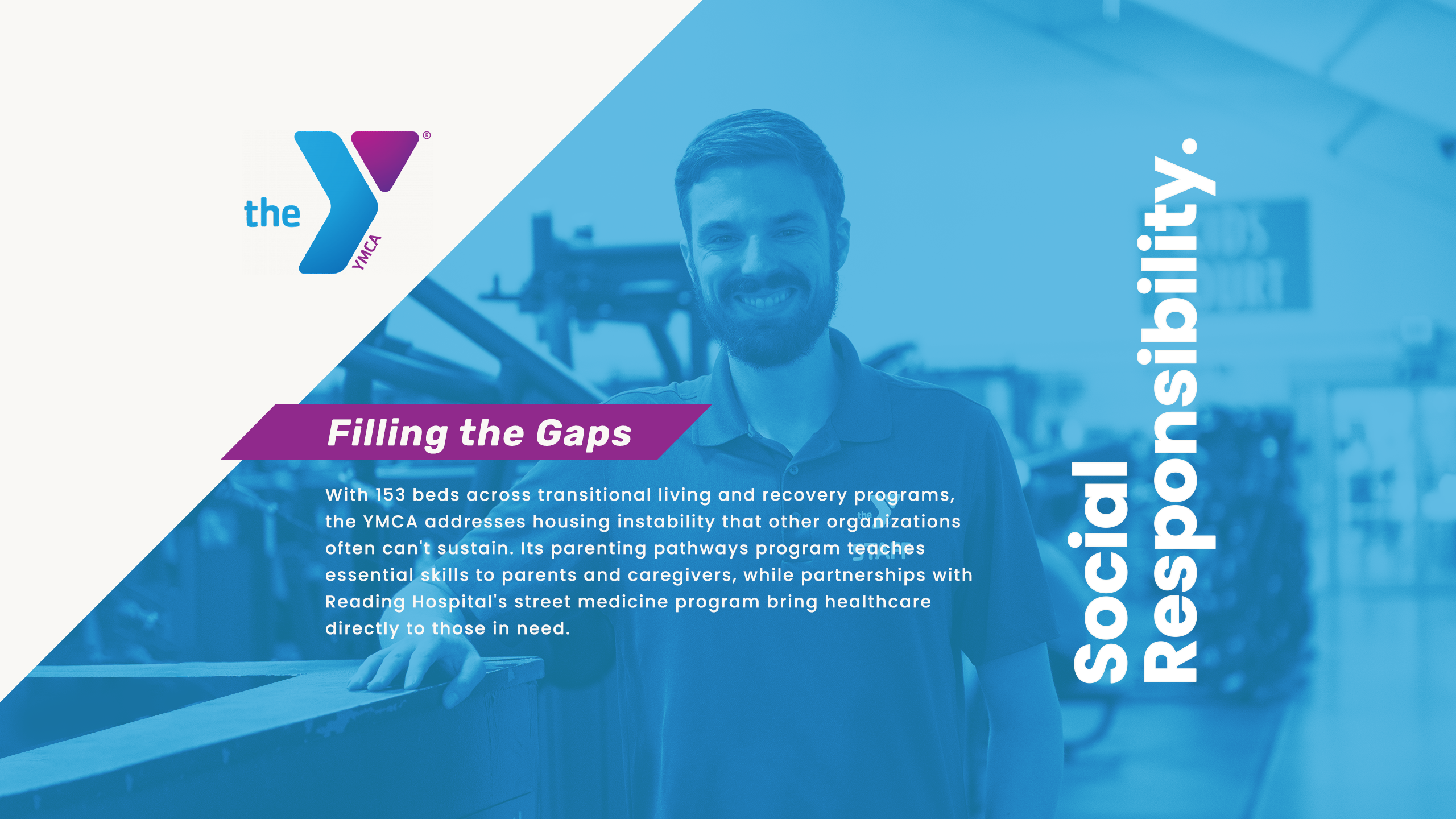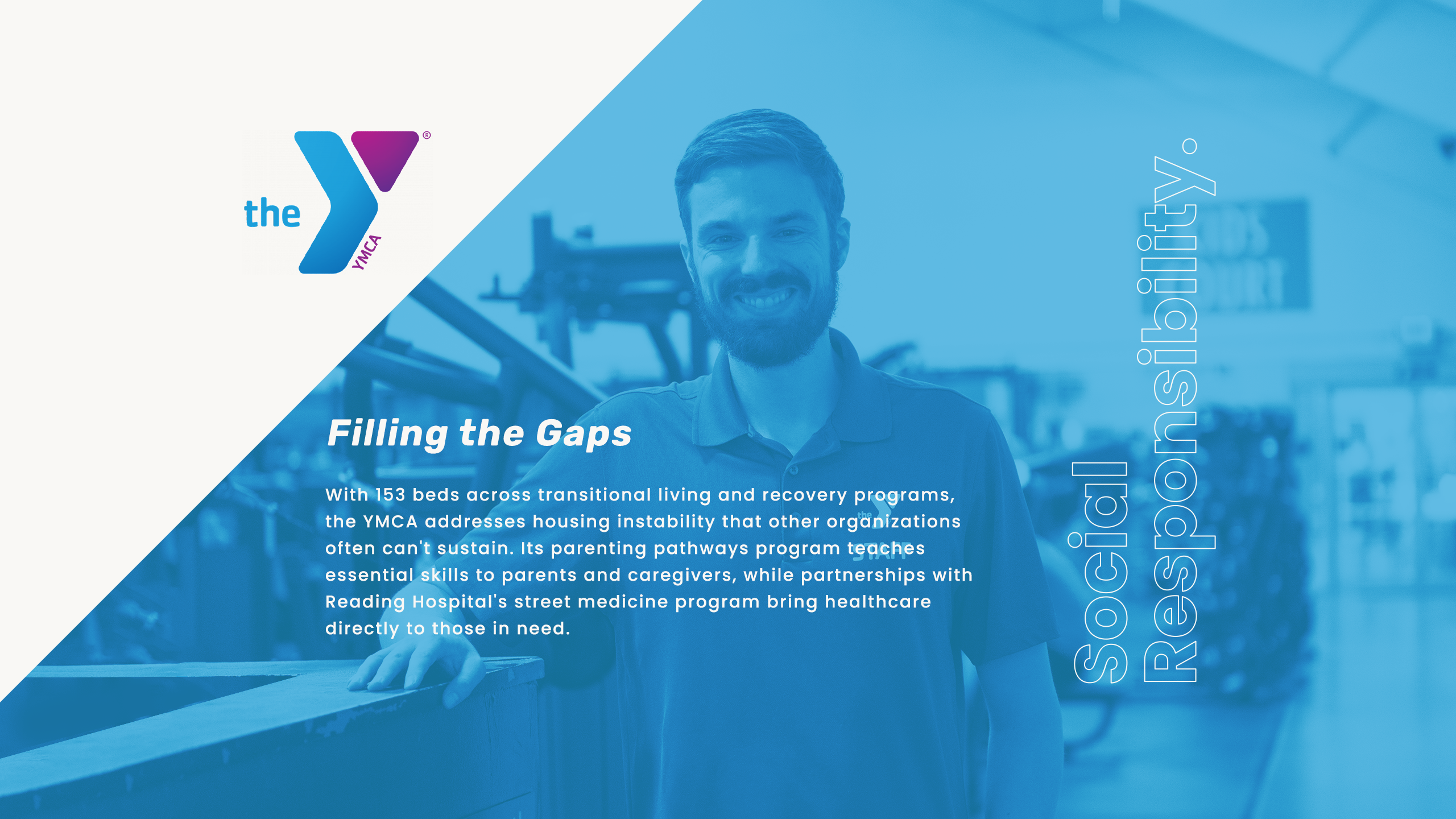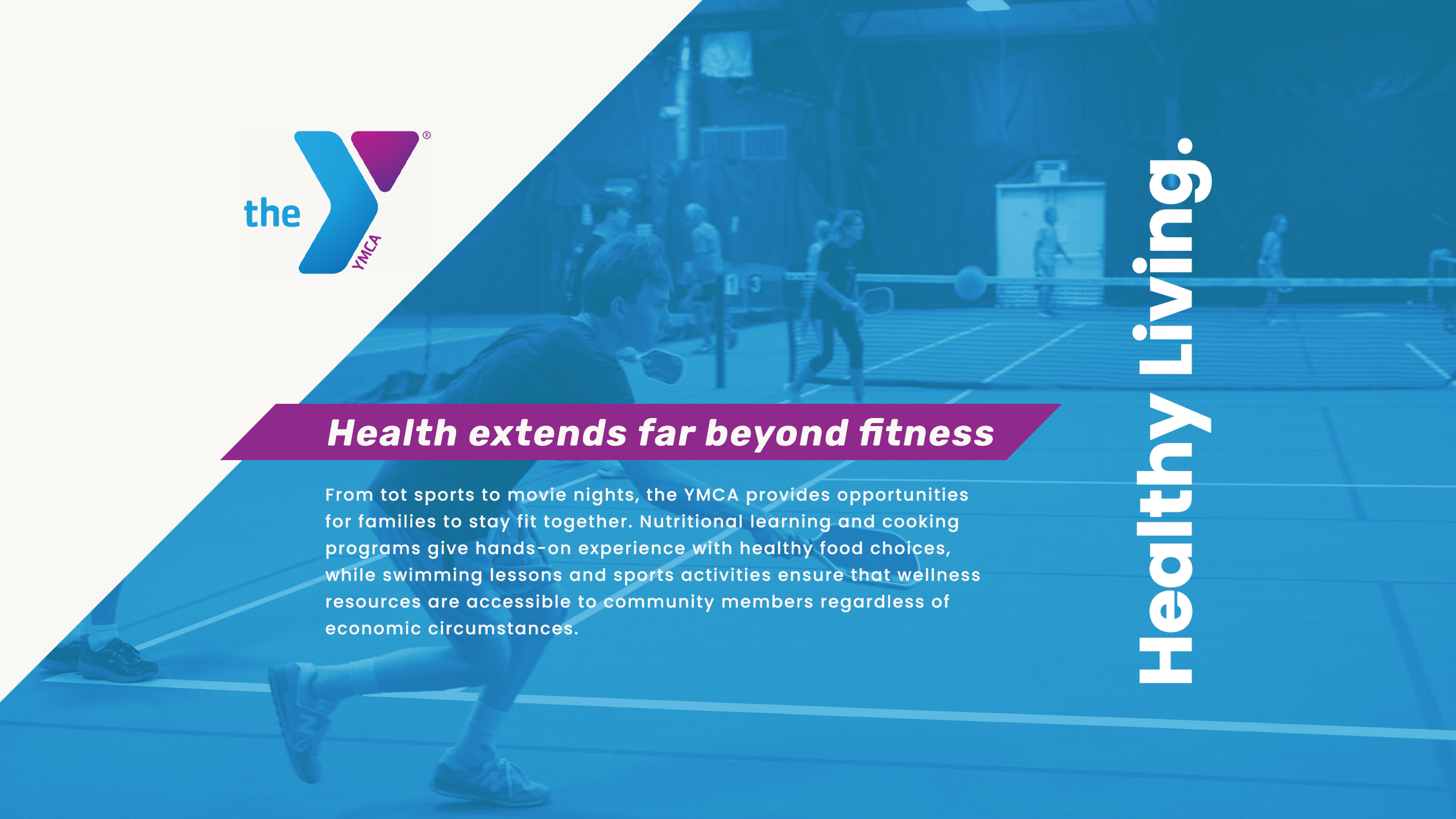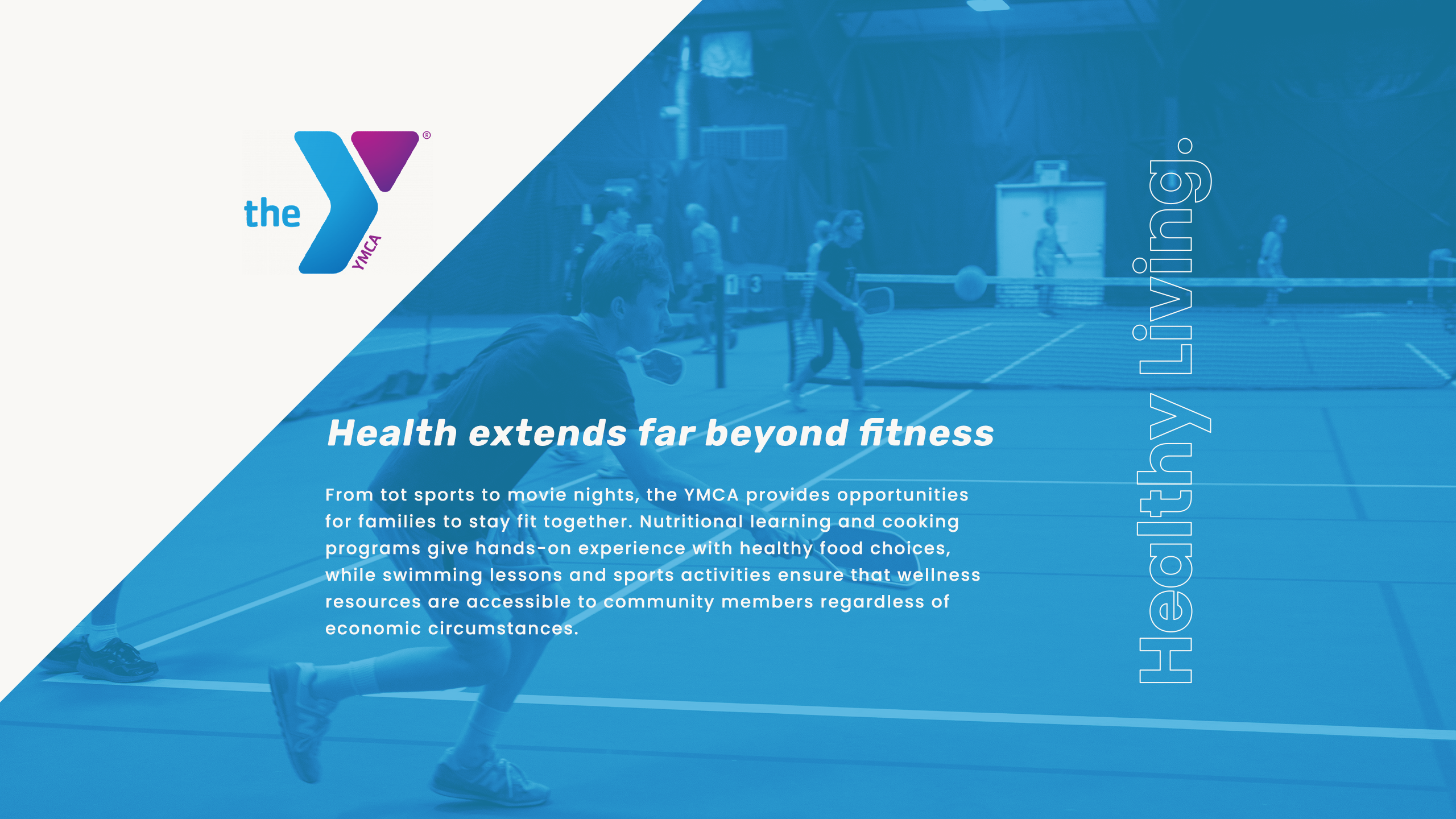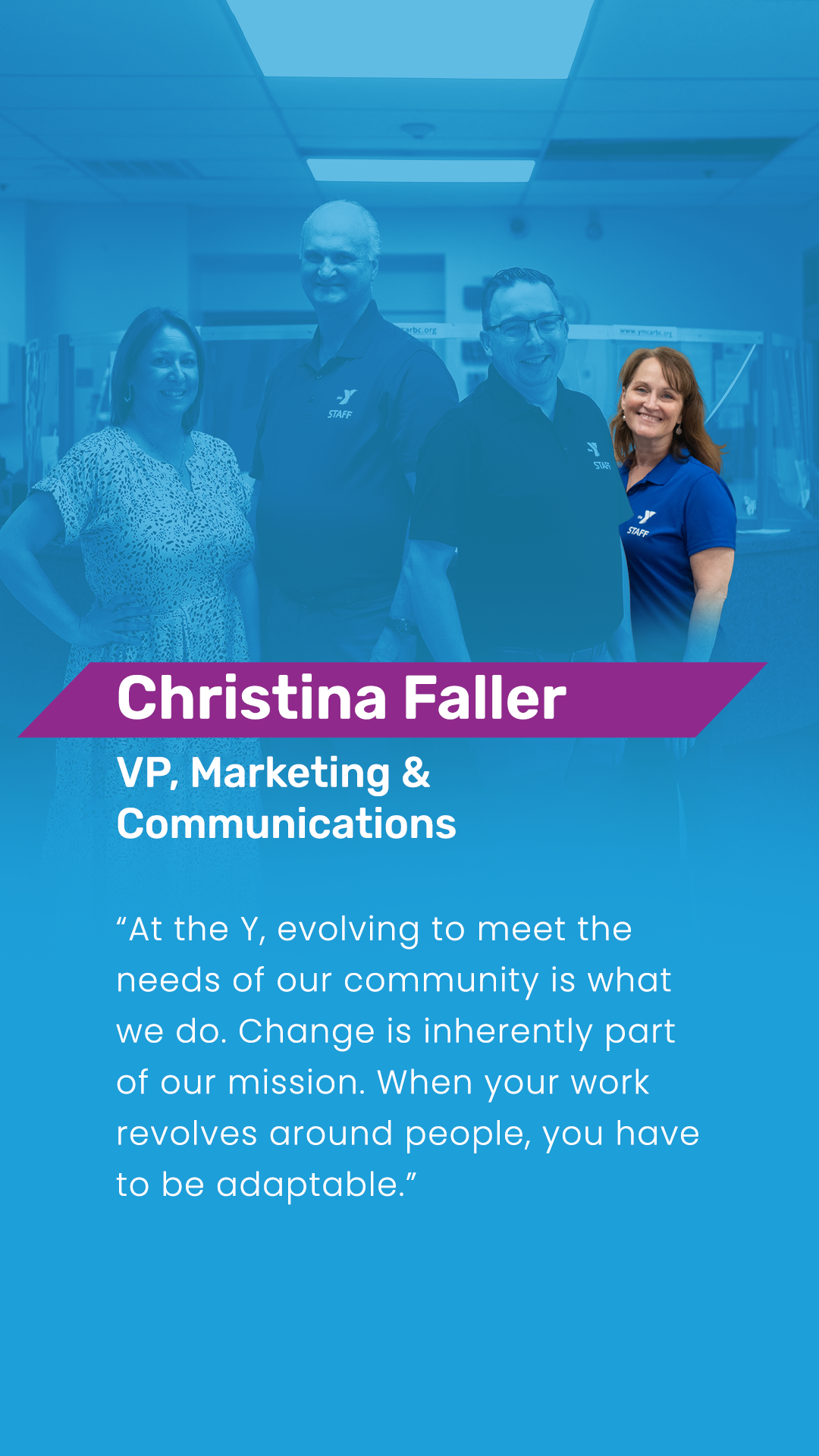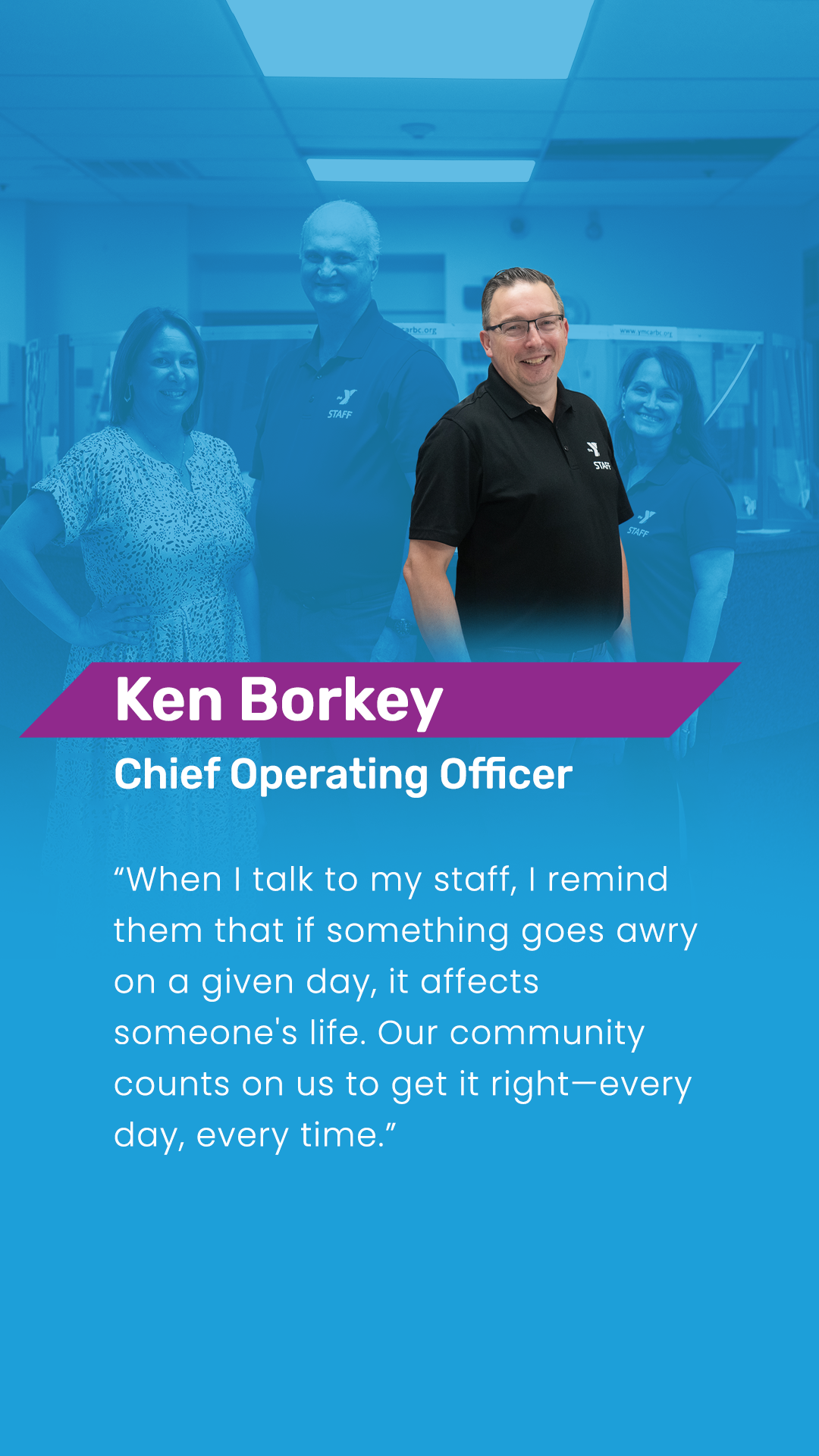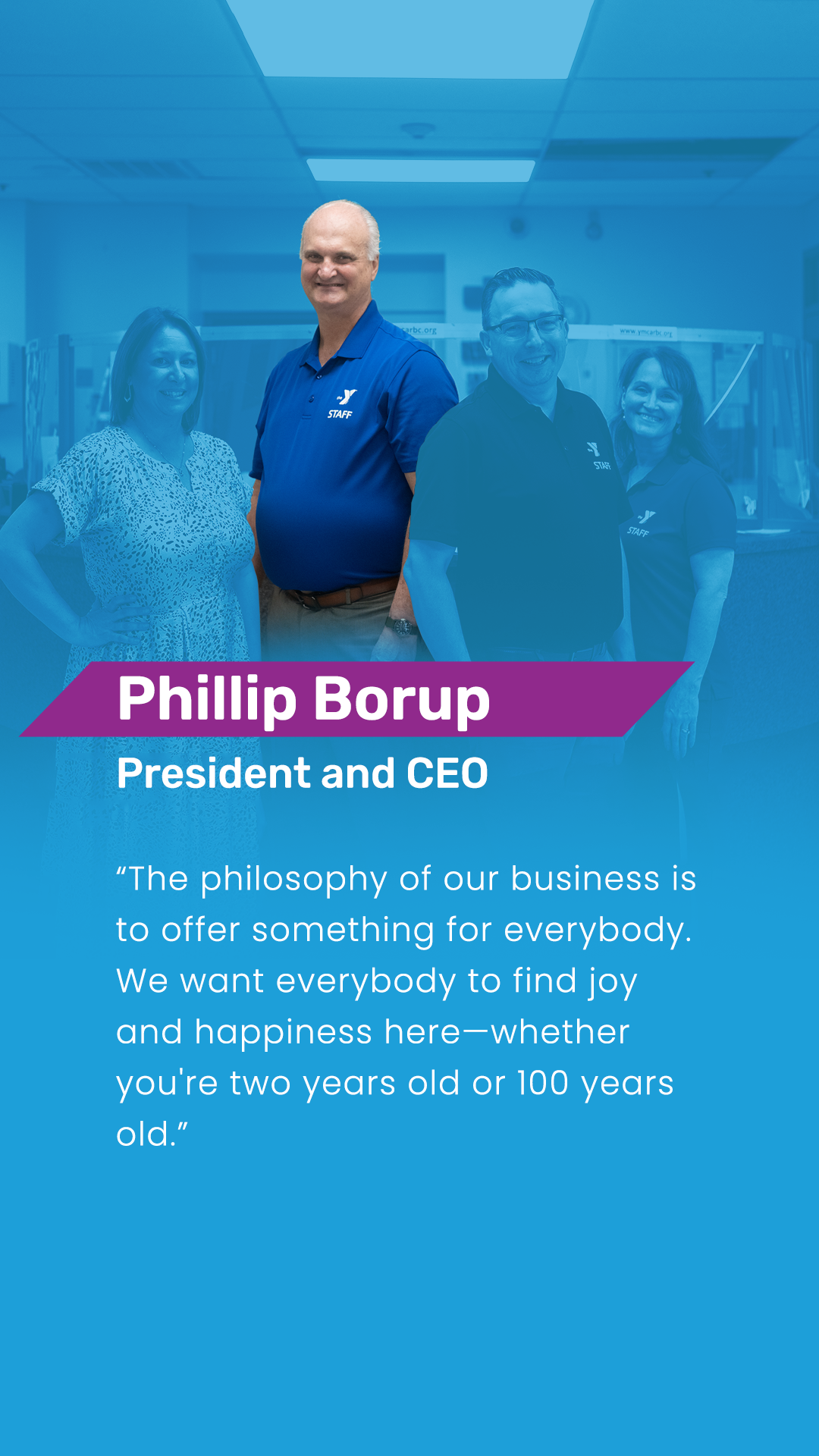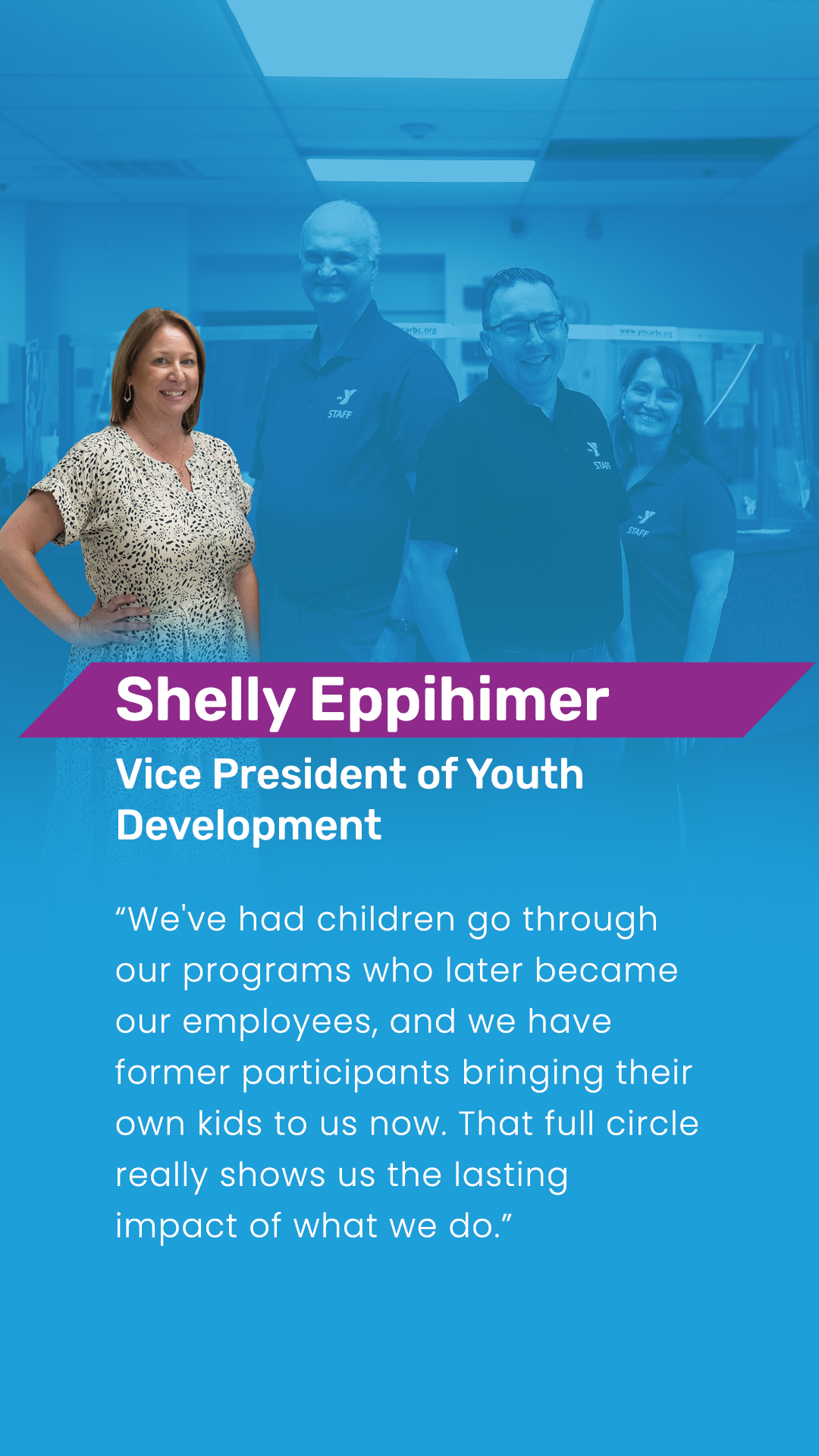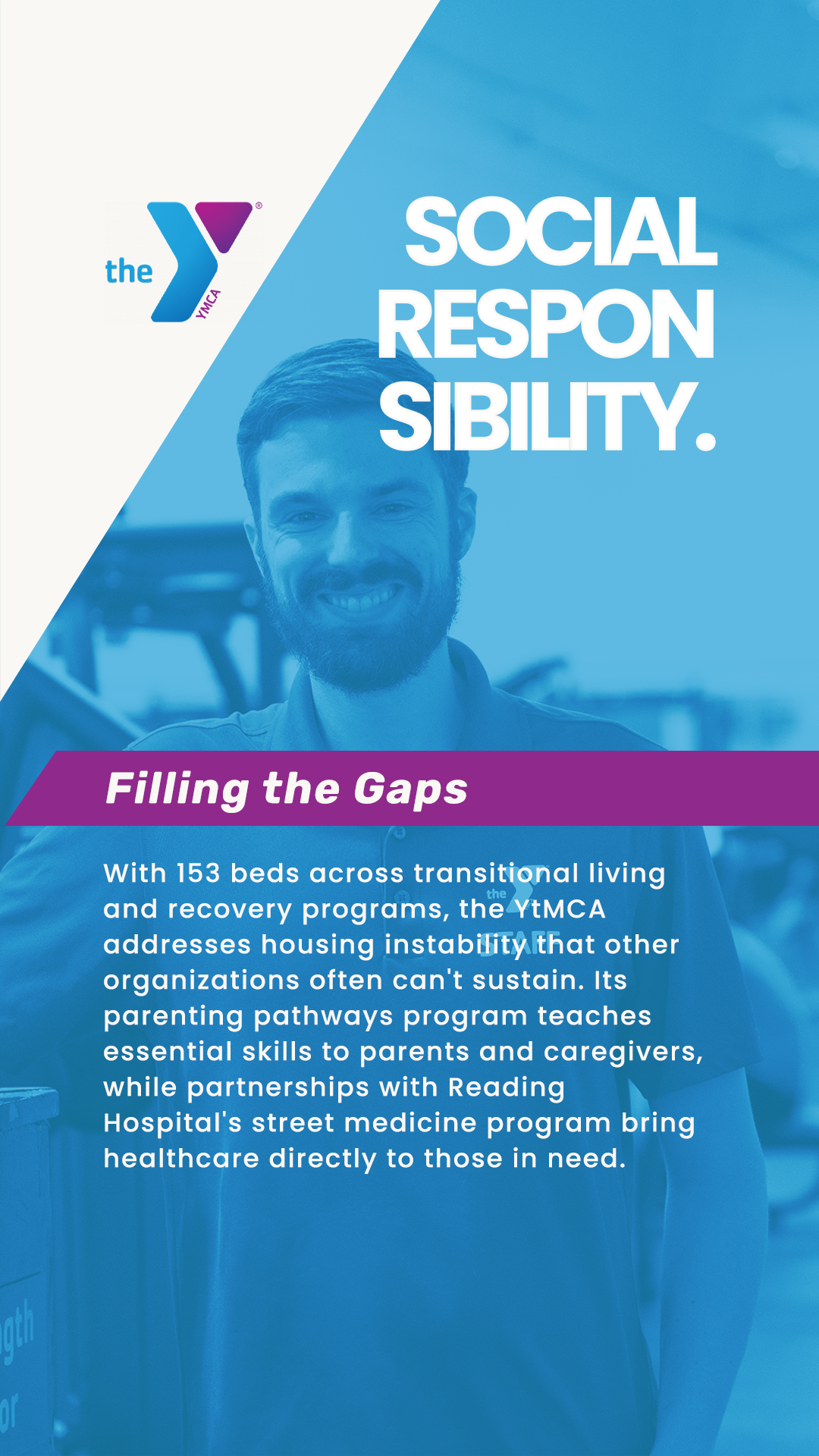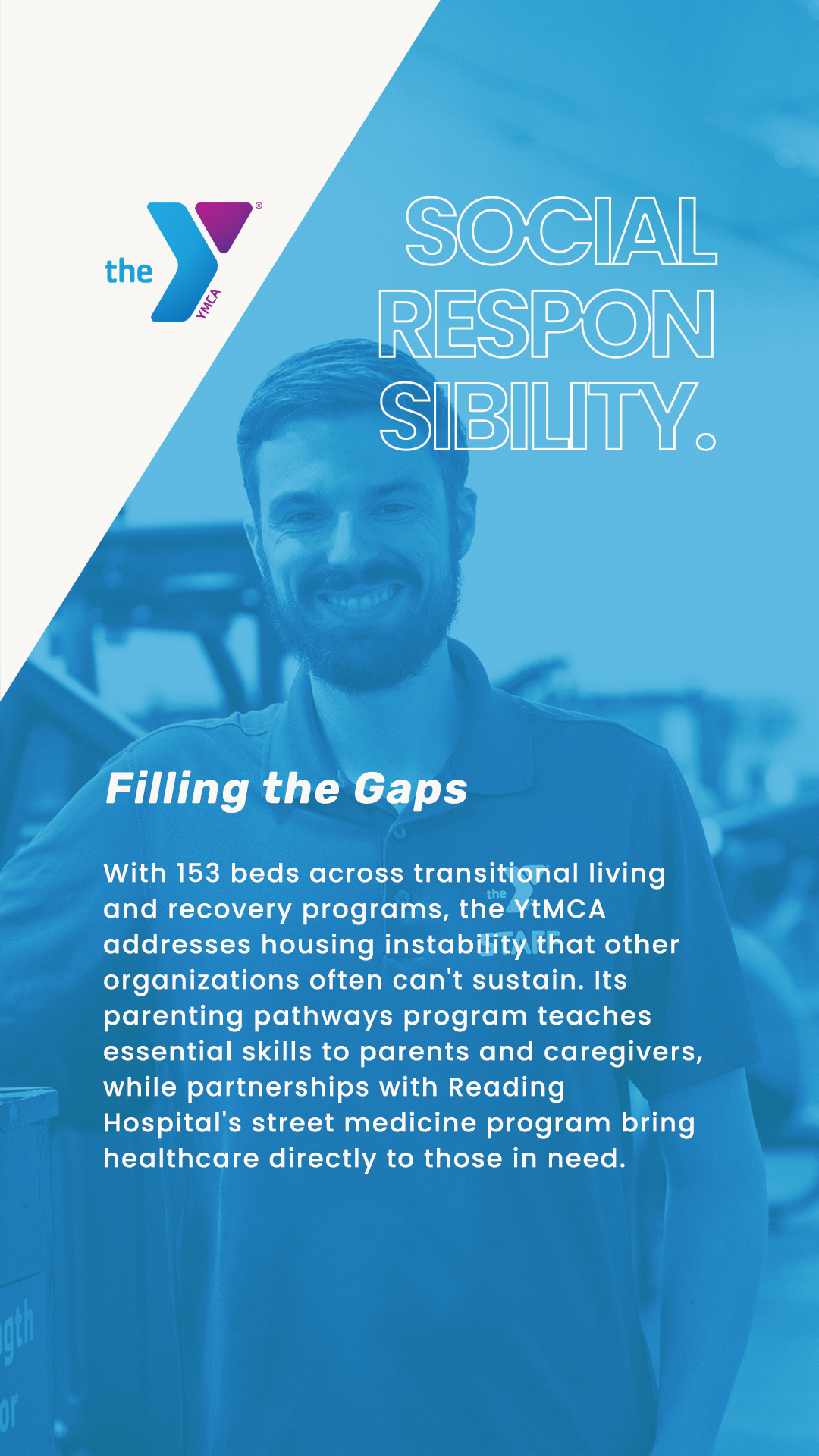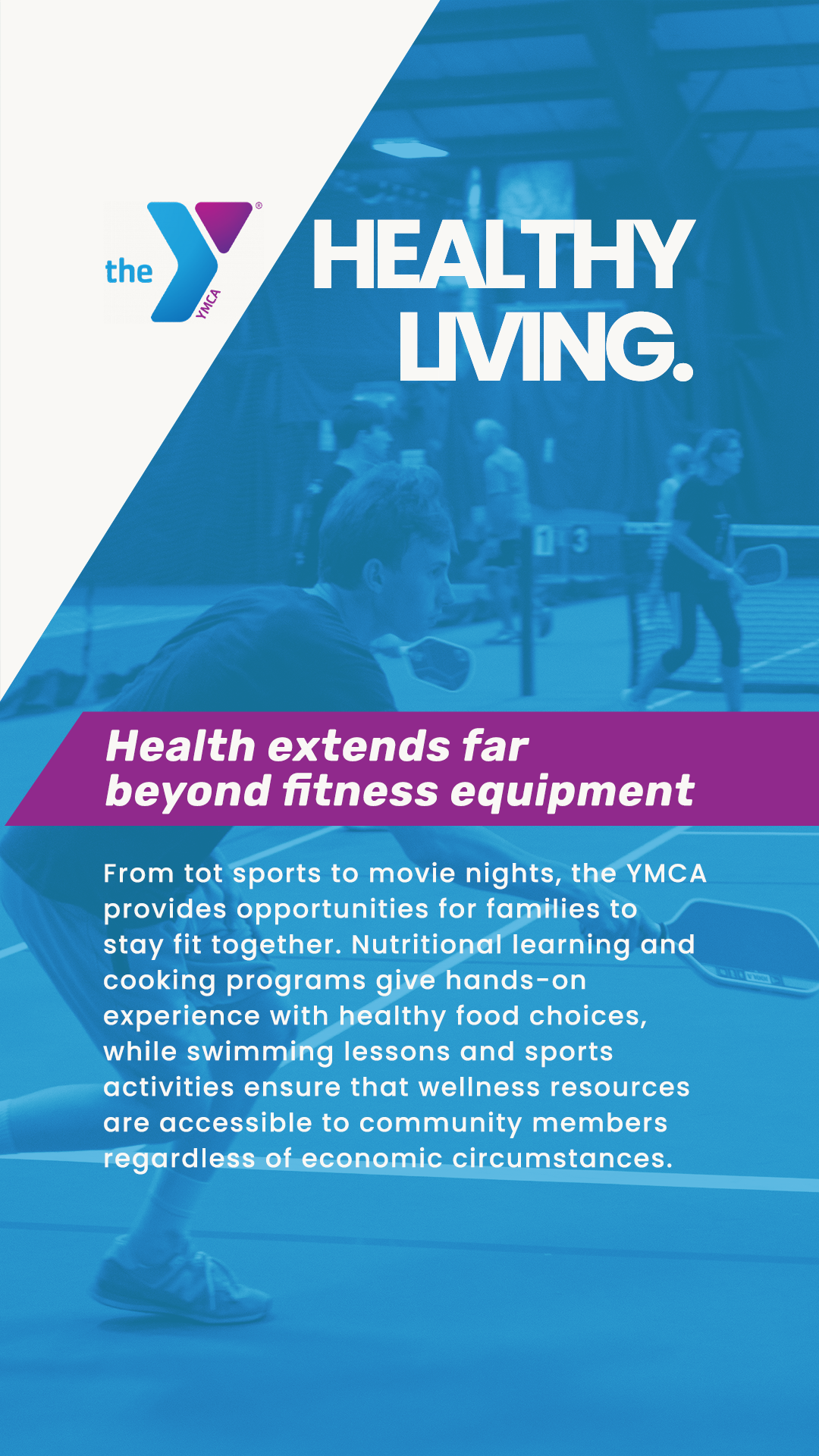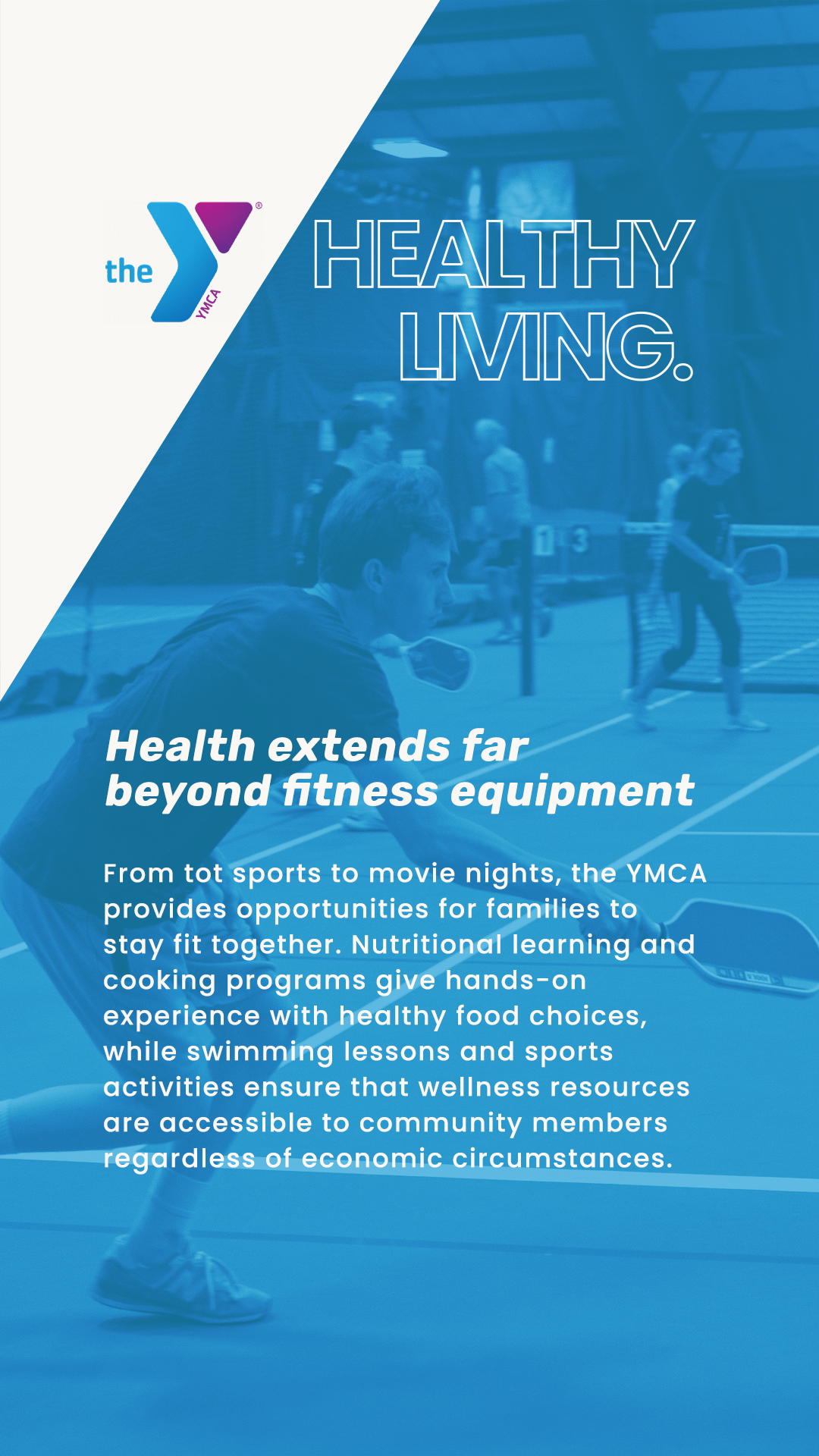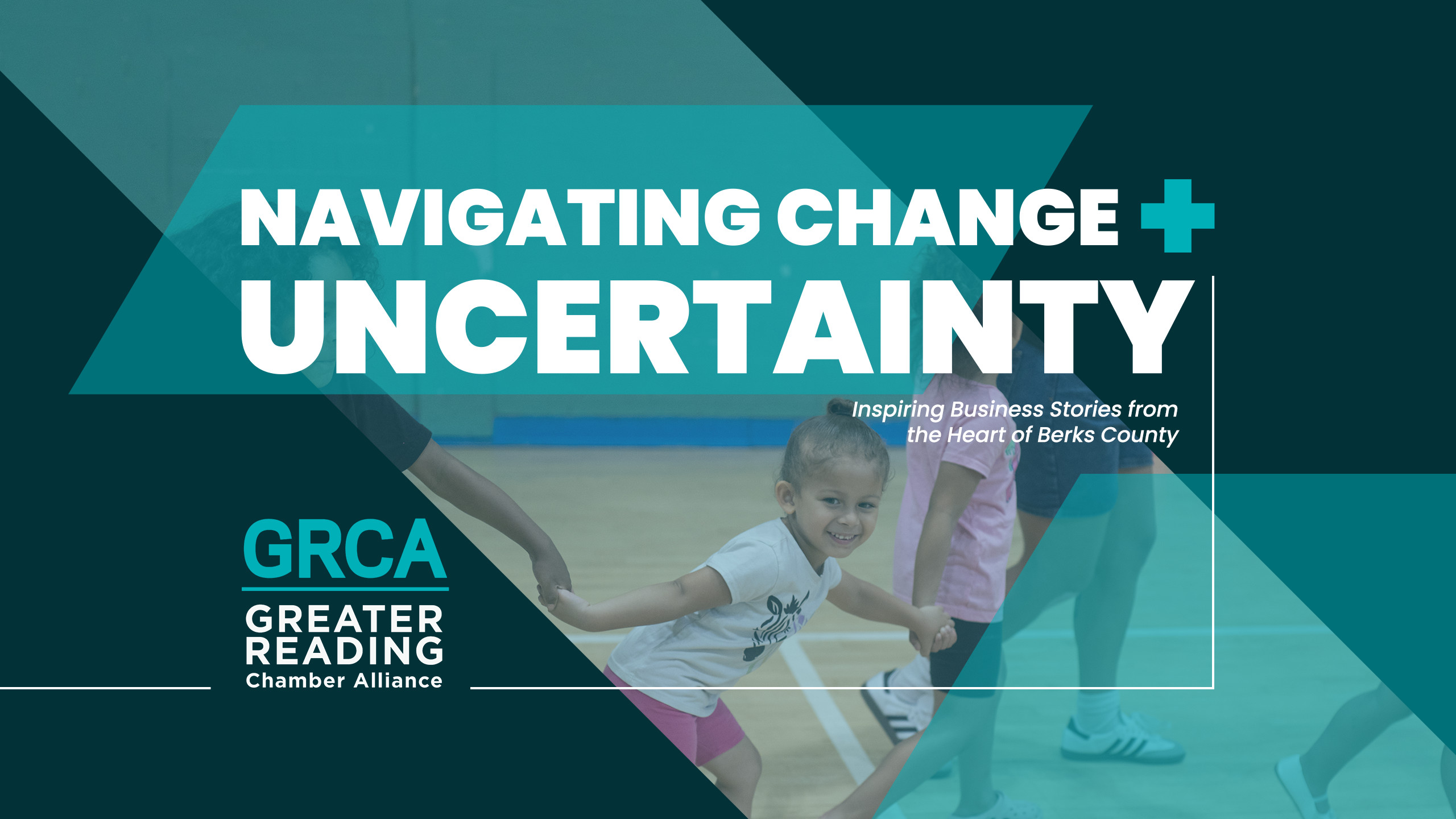
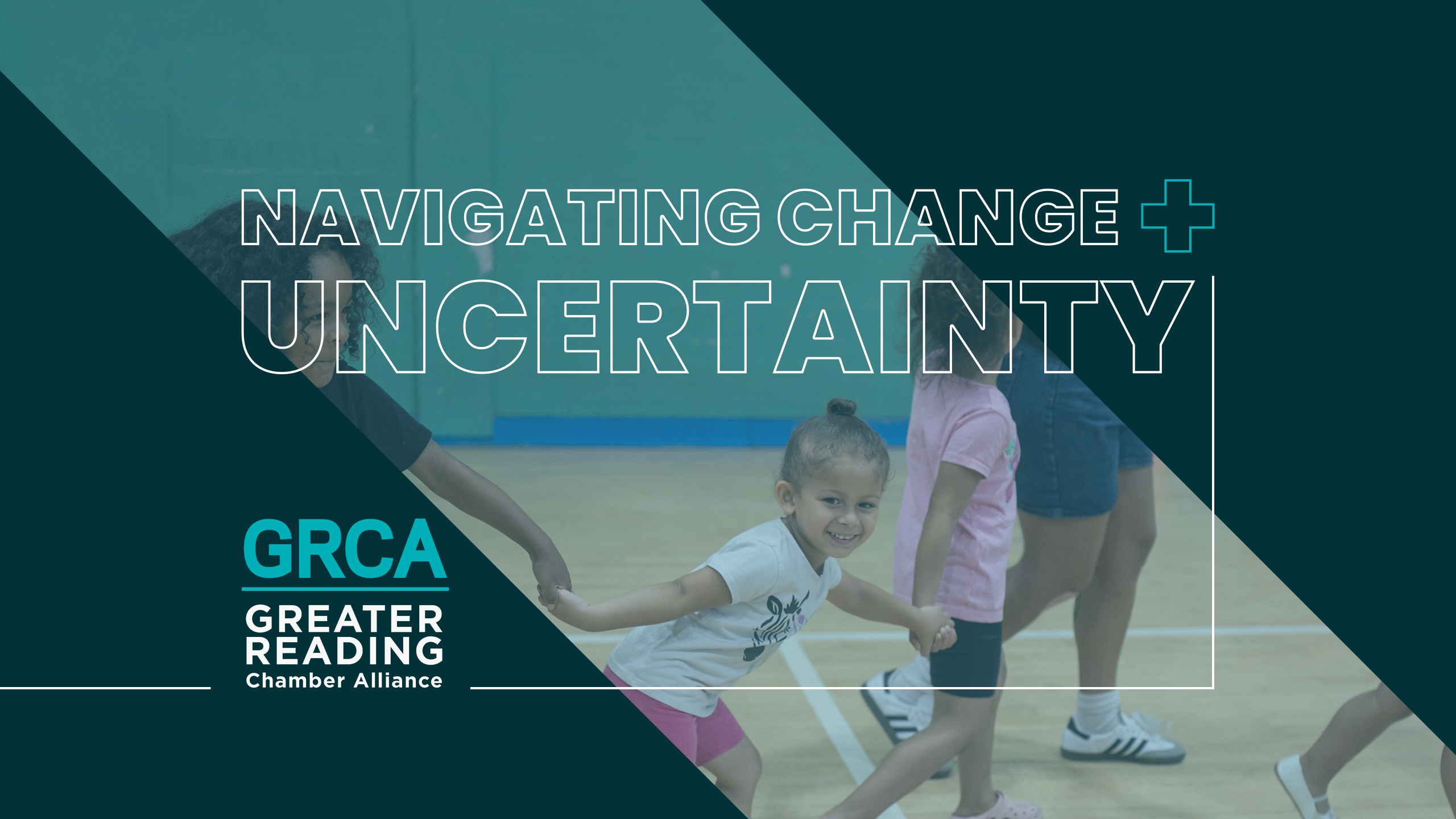
Want to explore additional Navigating Change + Uncertainty Stories from Reading, PA.? Visit the GRCA’s dedicated webpage.
Interested in learning more about a GRCA membership and a chance to be featured in an upcoming feature story?
For 167 years, the YMCA of Reading & Berks County has understood a simple truth: when communities face uncertainty, the answer isn't to pull inward but to reach outward. As it looks ahead, the YMCA continues expanding its reach with new initiatives and partnerships that reflect changing community needs. In times when division seems easier than unity, when change feels overwhelming rather than energizing, the YMCA stands as proof that organizations built on genuine care for others don't just endure—they become unbreakable threads that hold communities together. After all, the challenges may change with each generation, but the human need for connection, support and belonging never will.
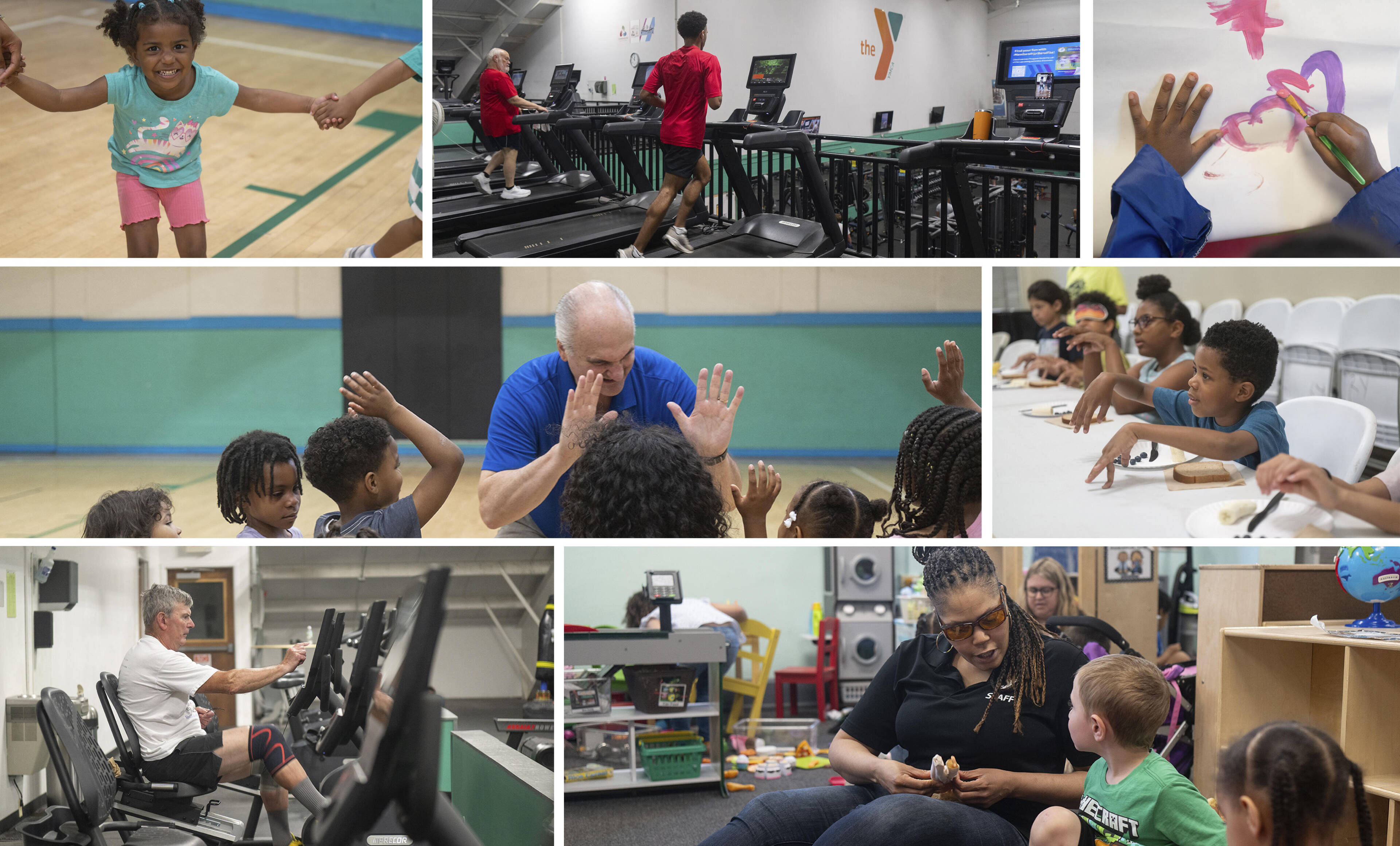
In an era when many organizations abandon challenging services due to cost or complexity, the YMCA of Reading & Berks County has chosen a different path. It remains one of a handful of YMCAs in the country still providing recovery housing services—a commitment that reflects its understanding of true community need.
"We are one of a few in the country that still provide recovery housing services and among a dozen who still offer housing," explains Borkey. This distinction matters because recovery housing requires specialized programming, intensive case management and long-term commitment that many organizations find unsustainable.
The YMCA operates 153 beds across multiple facilities, including its main transitional living programs and single room occupancy options. What makes its approach unique is the comprehensive support system it provides. "We have a combination where women with children have access to on-property childcare," notes Borkey. This integration of services removes transportation barriers that often prevent people in recovery from accessing the support they need.”
The decision to maintain these services hasn't been without challenges. Urban YMCAs across the country have abandoned aging buildings rather than renovate them for residential use. "Many Ys have abandoned those old buildings," explains Borup. "Newer Ys don't have the residential piece built into them."
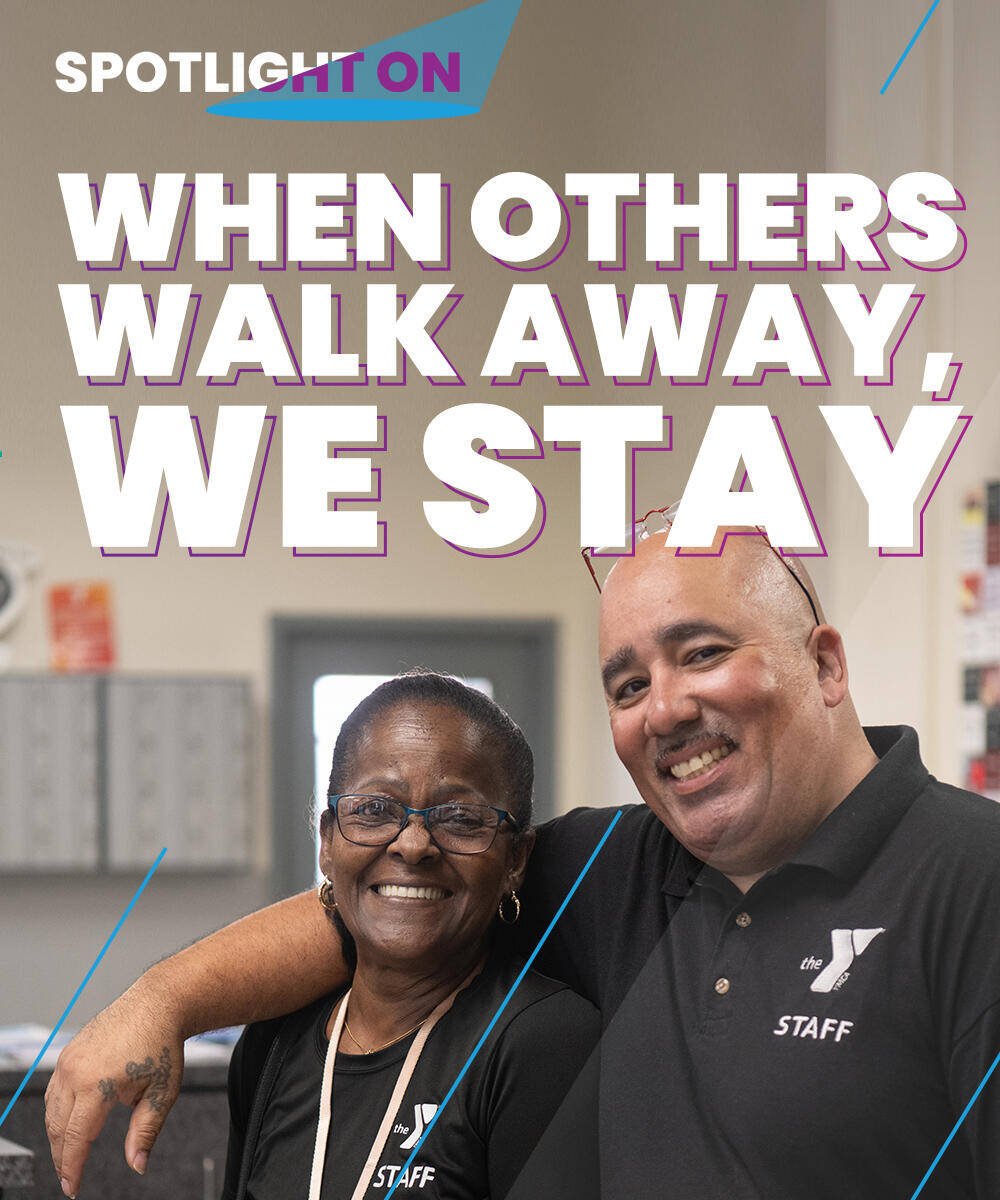
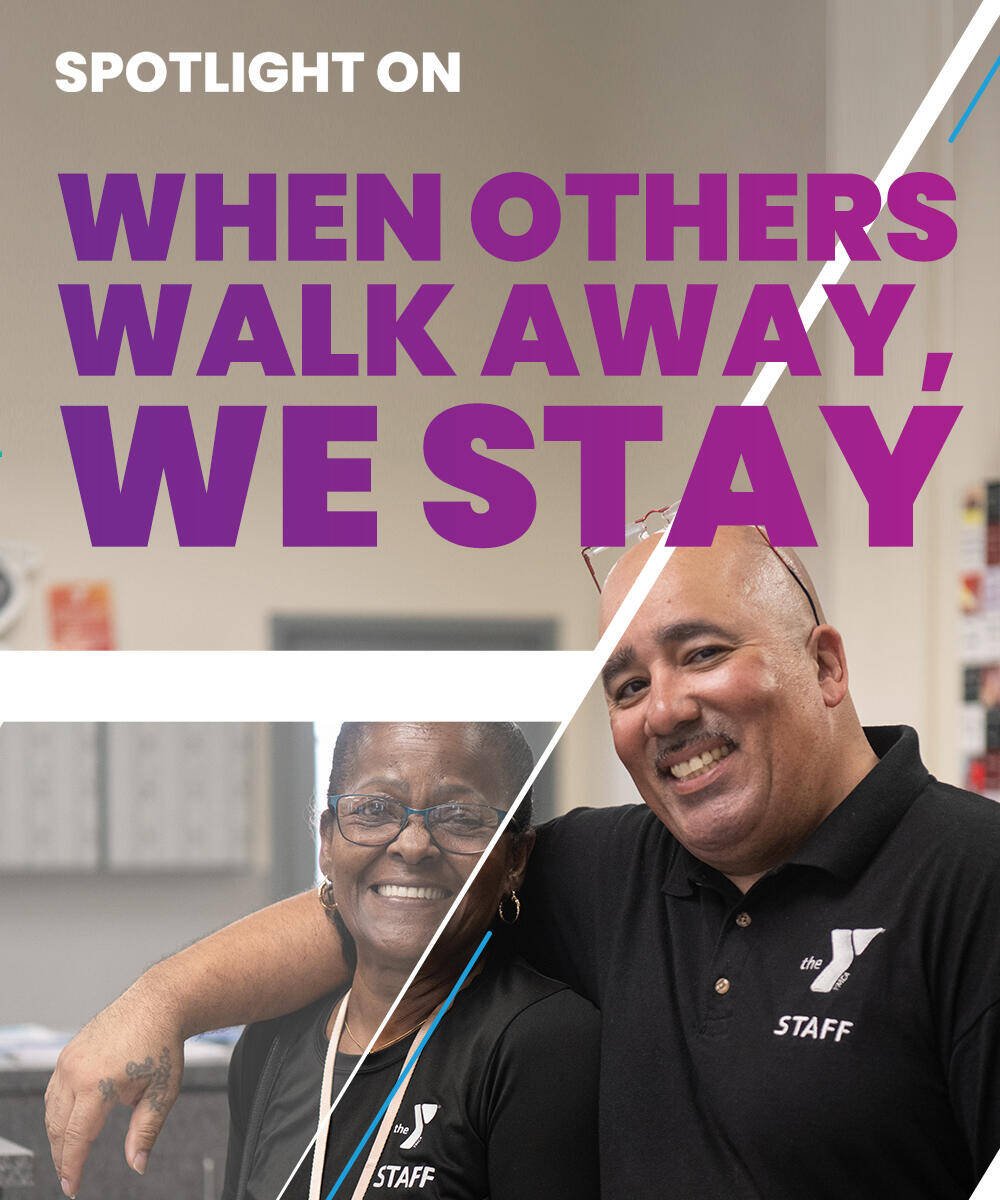
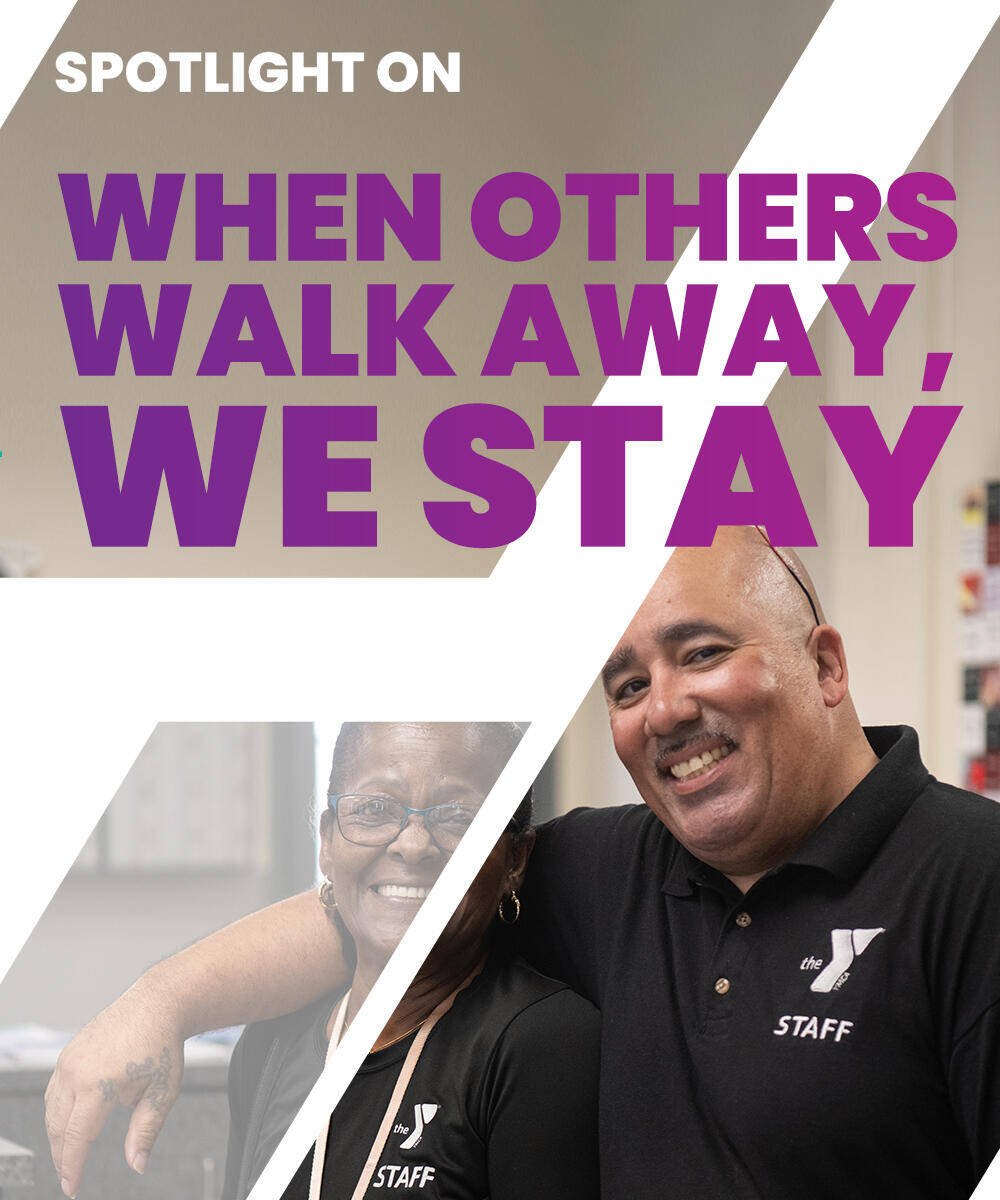
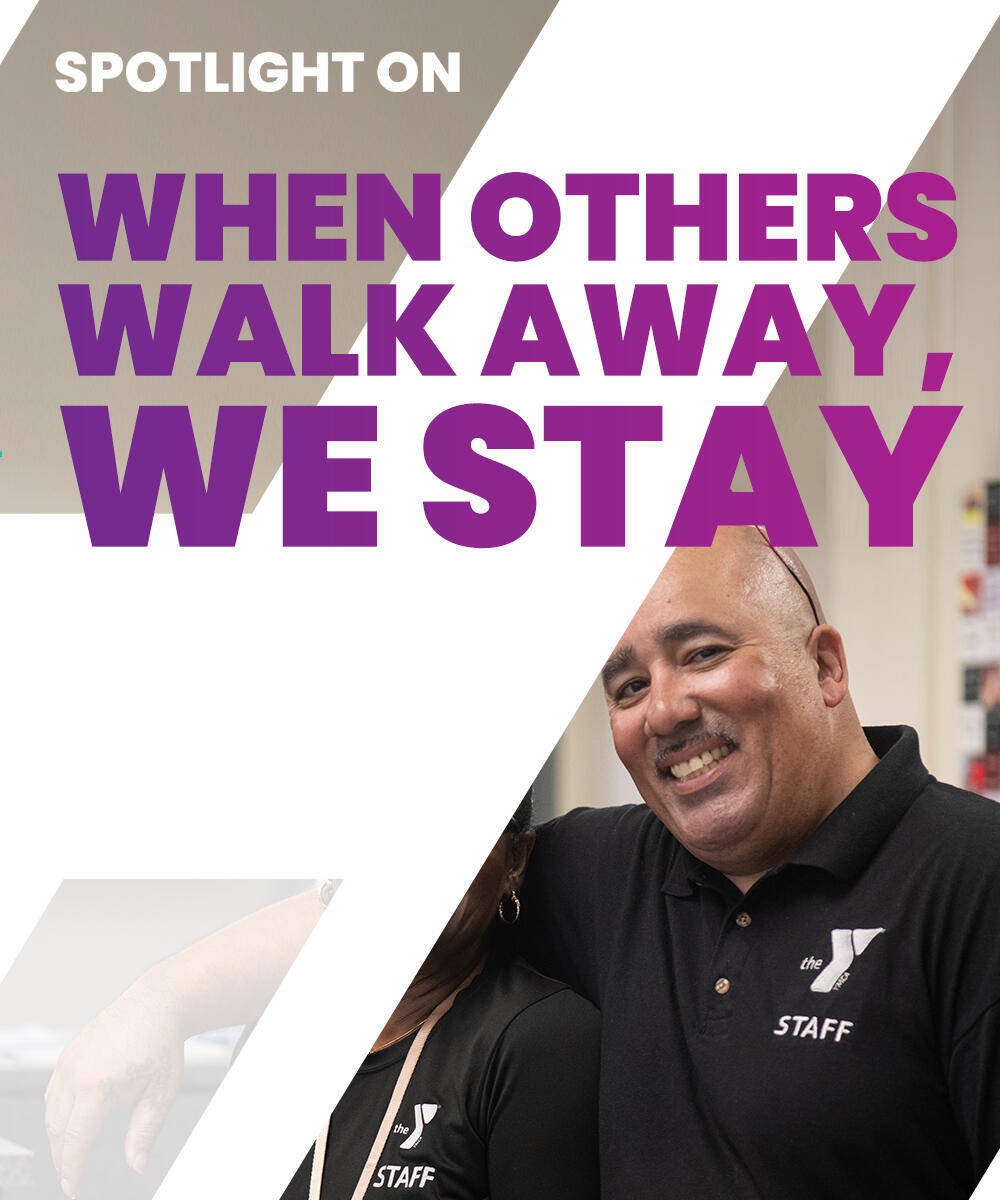
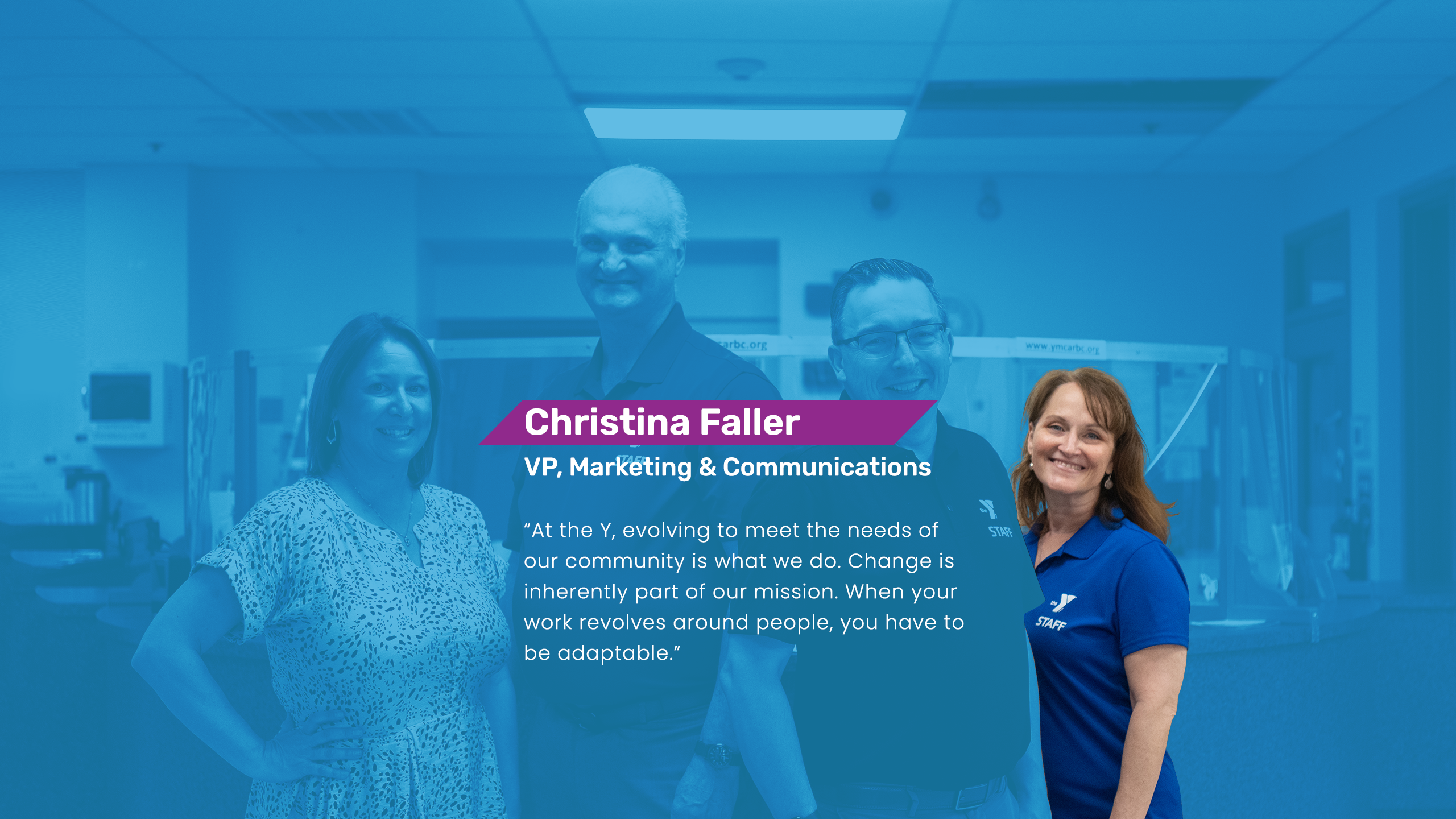
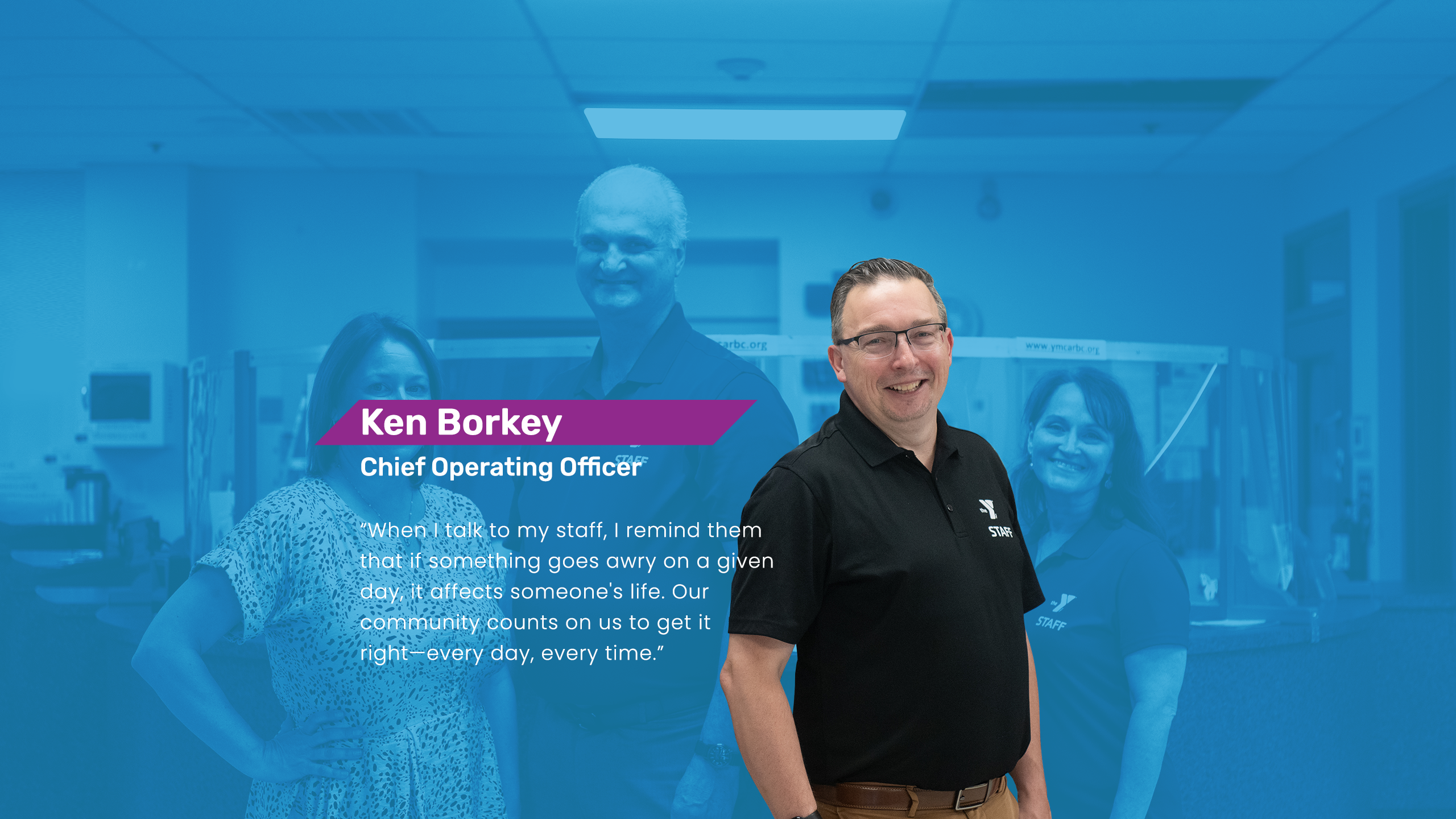
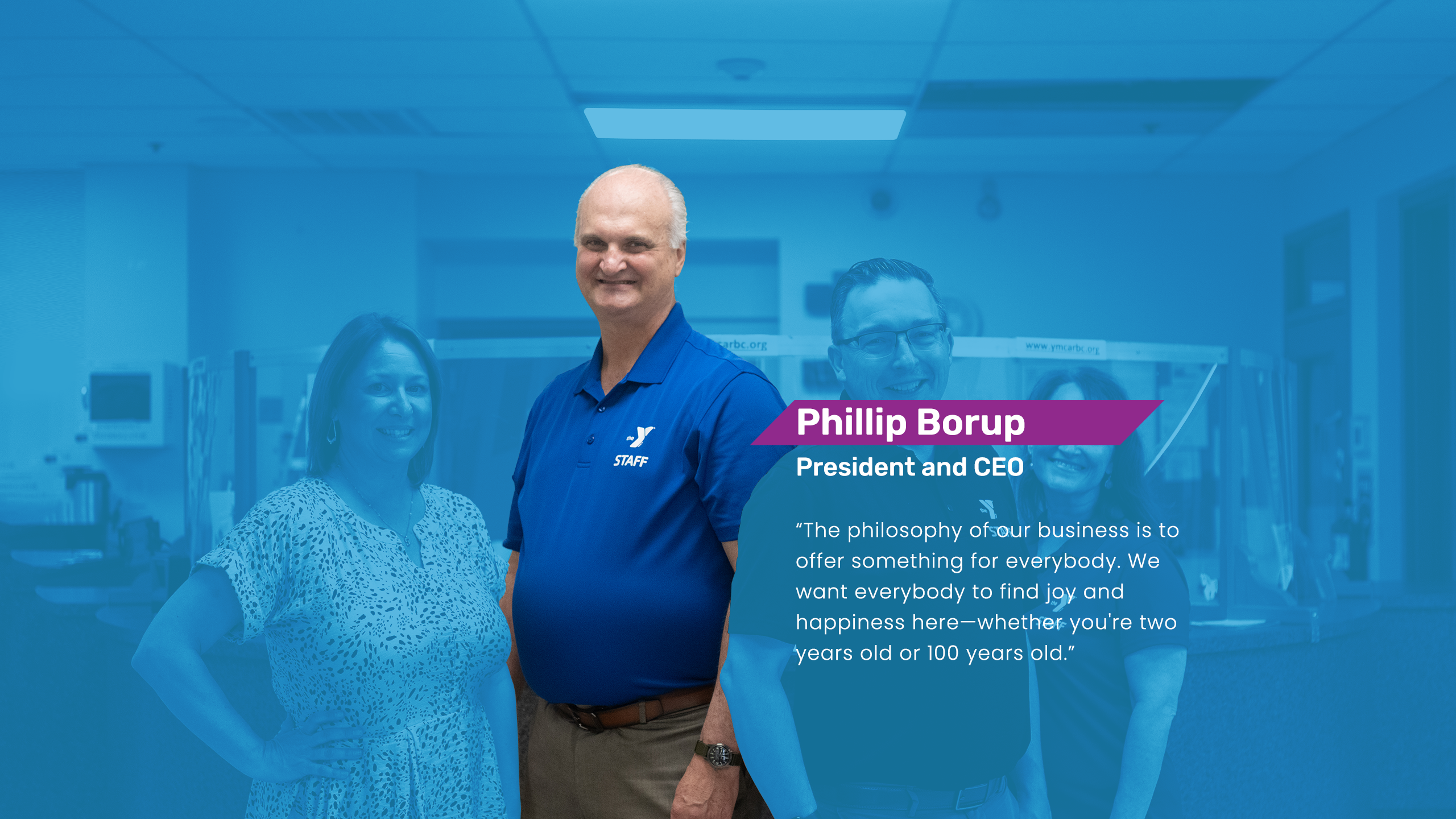
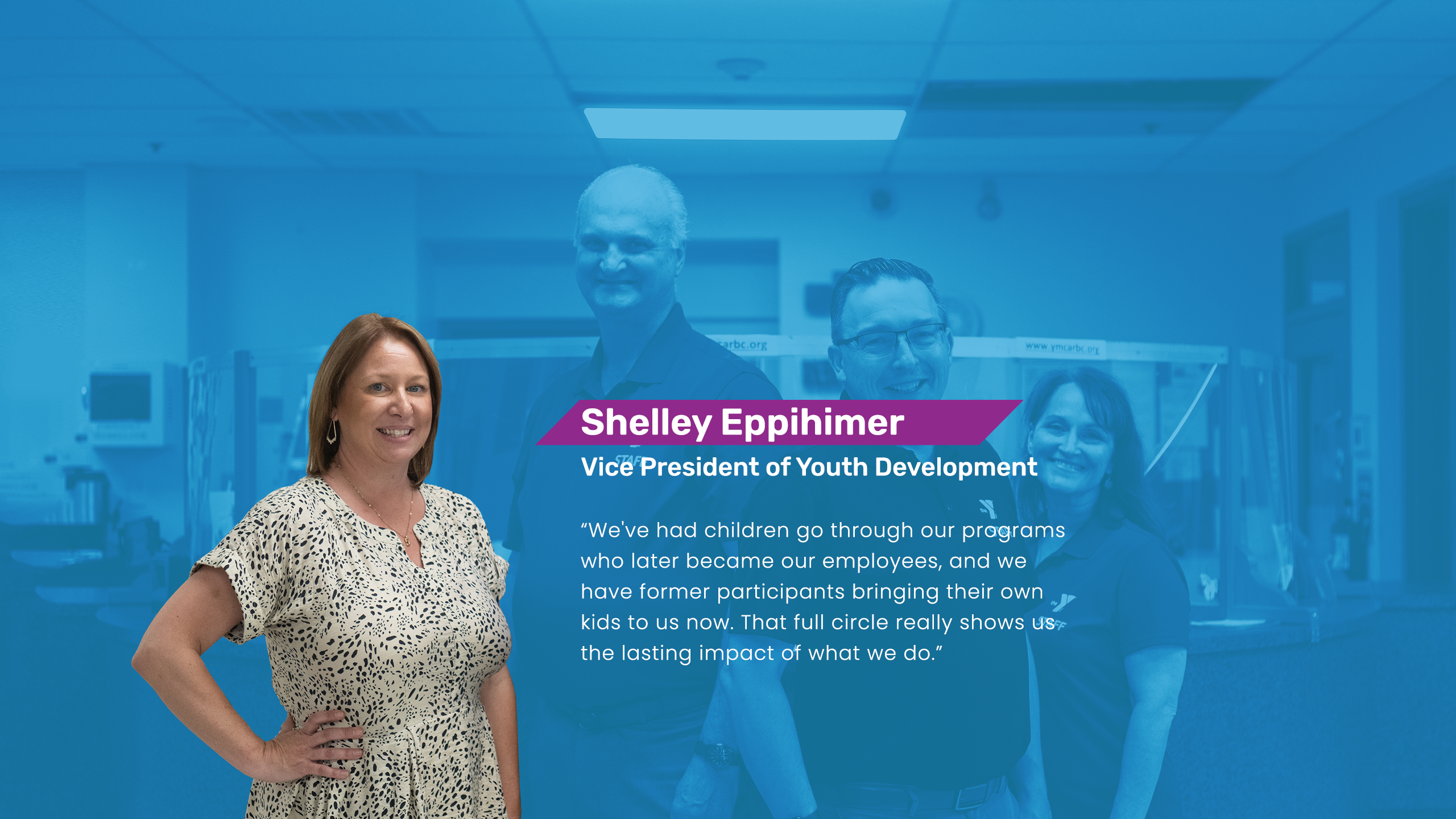
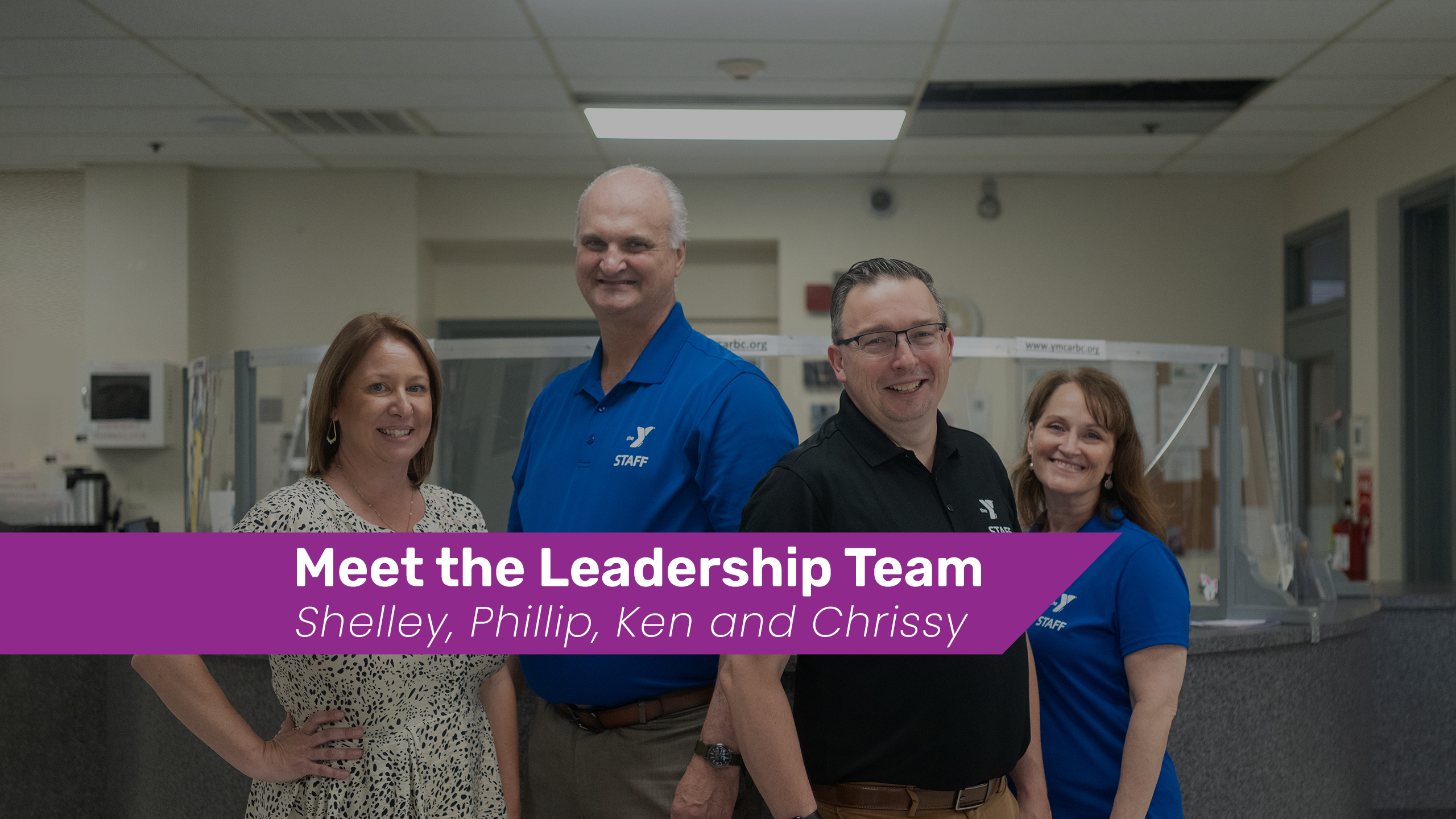
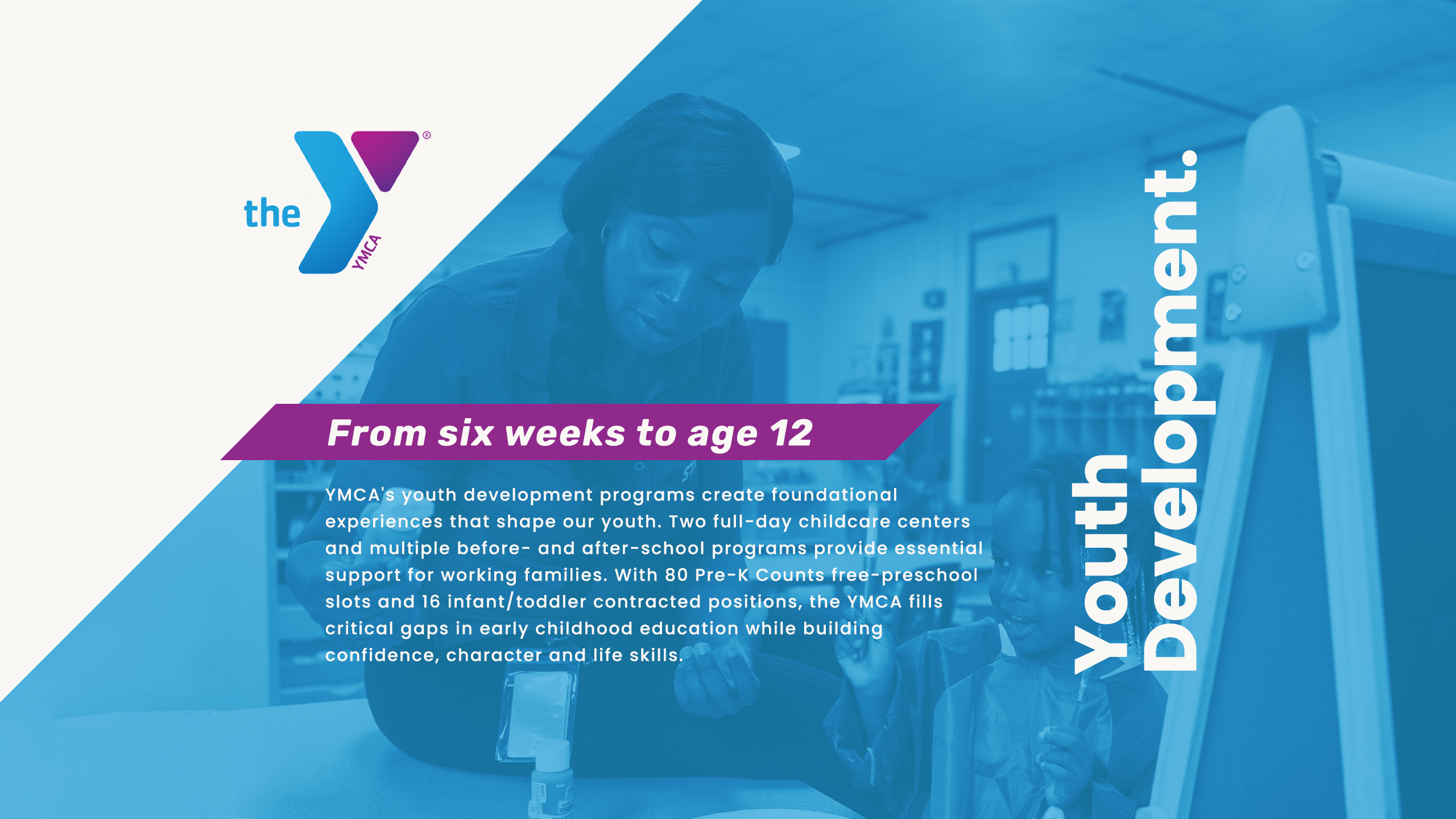
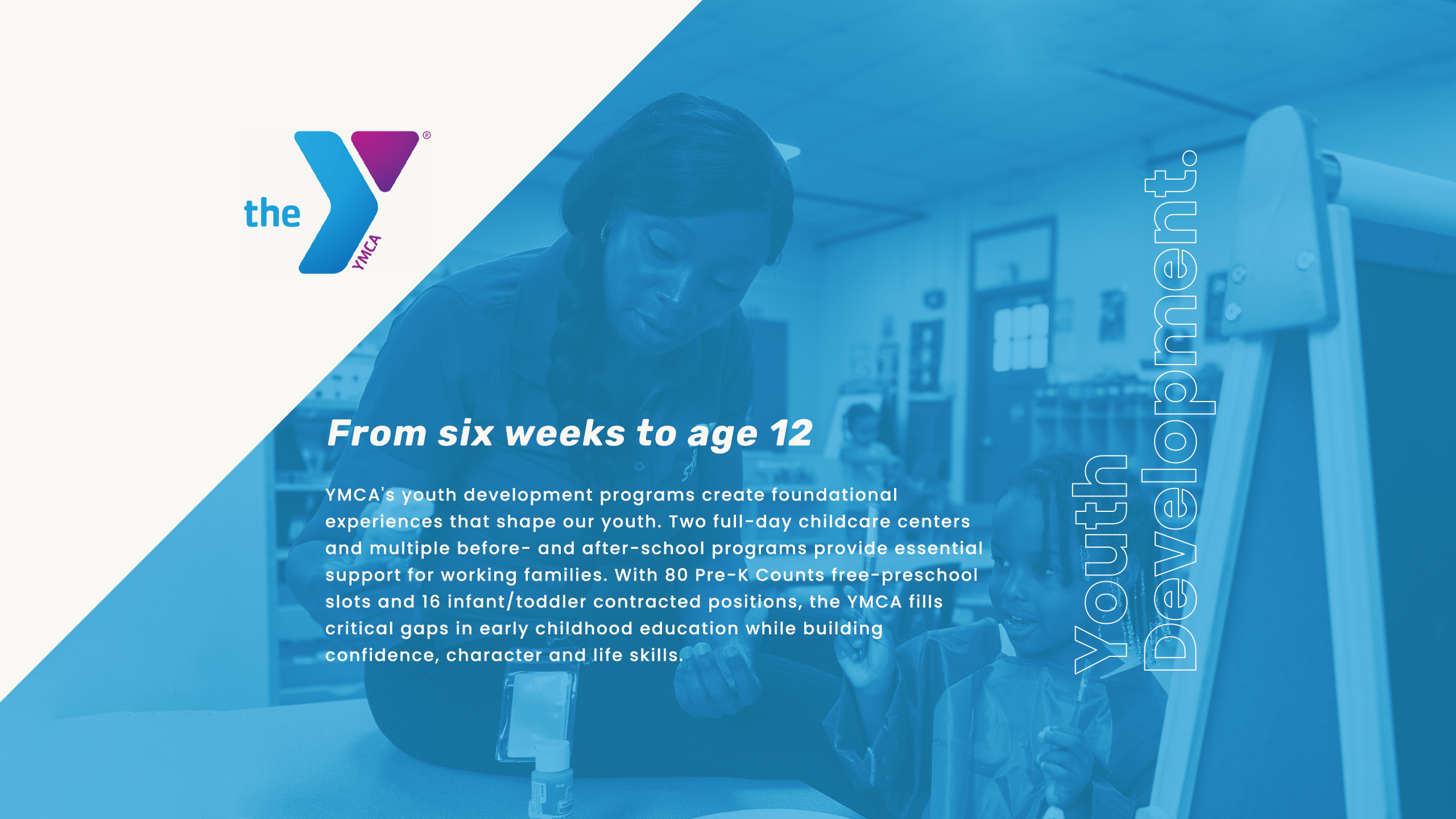

For 167 years, the YMCA of Reading & Berks County has been the backdrop for countless firsts—first steps into the pool, first friendships at summer camp, first safe nights for families in crisis and first chances at recovery. What began in 1858 as a modest reading room has evolved through countless adaptations to meet the changing needs of the times. We have countless stories about its impact—from housing services to fitness programs, from senior support to community partnerships. Today's story focuses on one of its most critical roles: supporting children and families. In an era when communities nationwide face a childcare crisis and families struggle with new economic pressures, the YMCA has proven that truly committed organizations don't resist change—they rise to meet it and view it as an opportunity to serve.

This approach has enabled the YMCA to navigate everything from wars and economic downturns to culture revolutions and global pandemics. After more than a century and a half, it continues proving that organizations rooted in community needs can adapt to any era if it preserves its core purpose. "We always look first to the mission and vision alignment of what we're trying to do," reflects Ken Borkey, Chief Operating Officer.
The story of the YMCA of Reading & Berks County begins in 1858, with young men gathering in a rented room at 544 Penn St., reading newspapers and seeking fellowship as an alternative to the corner saloons of the day.
“The YMCA movement began in 1844 in London, and the Reading YMCA opened its doors in 1858, making us one of the oldest Ys in the country," notes Phillip Borup, President and CEO. This local chapter was part of the initial wave of American YMCAs, when fewer than 100 existed nationwide.
The modern YMCA has organized its work around three core areas: Youth Development, Healthy Living and Social Responsibility. These interconnected services reach nearly 8,500 active members and participants across the region and are delivered through its main facility and community branches in Adamstown, Mifflin, Reading, Sinking Spring and Tri Valley.
The scope of its work, however, challenges simple categorization. It operates two full-day childcare centers, multiple after-school programs, summer camps and transitional housing facilities. It’s one in a dozen YMCAs in the country still providing recovery housing services, recognizing that some community needs require long-term commitment—even when they're challenging to sustain.
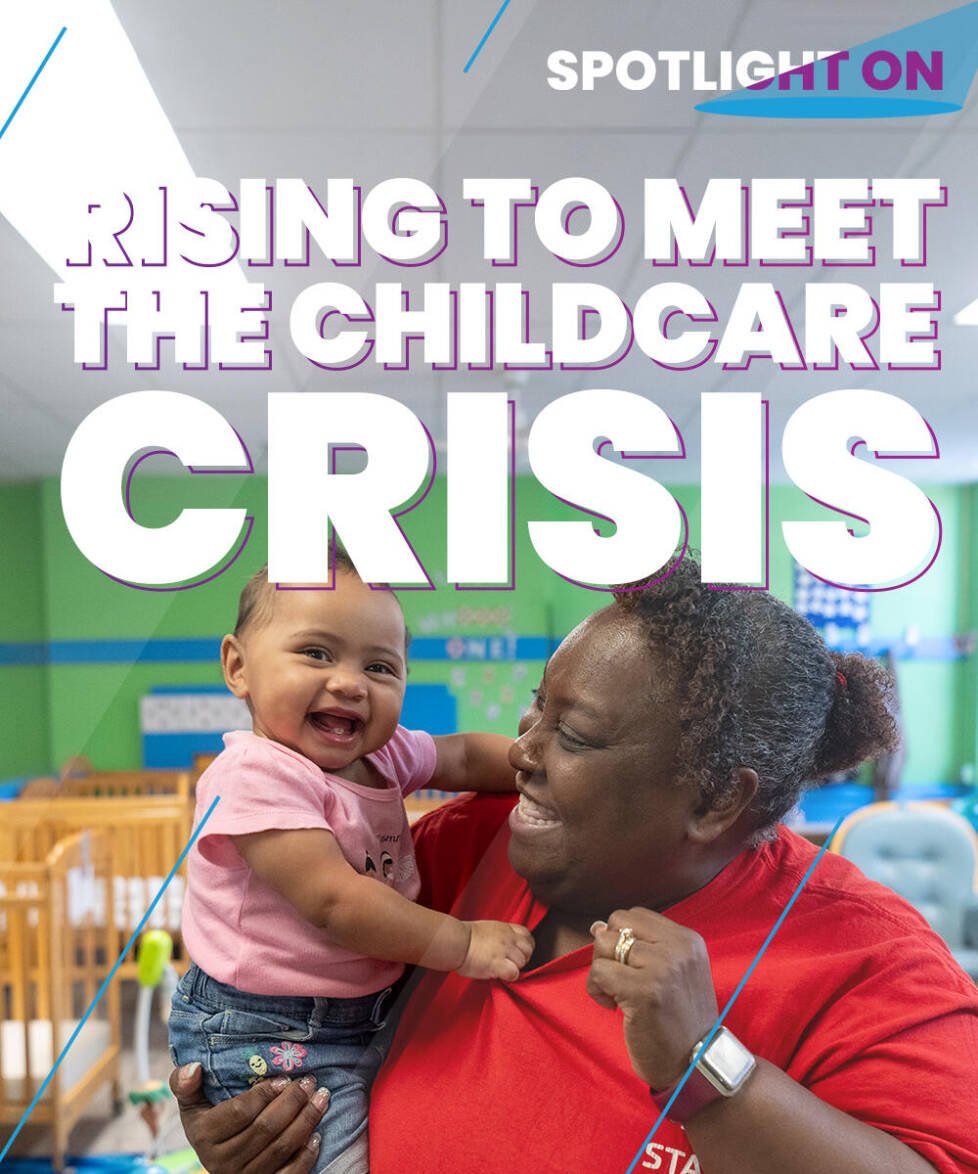
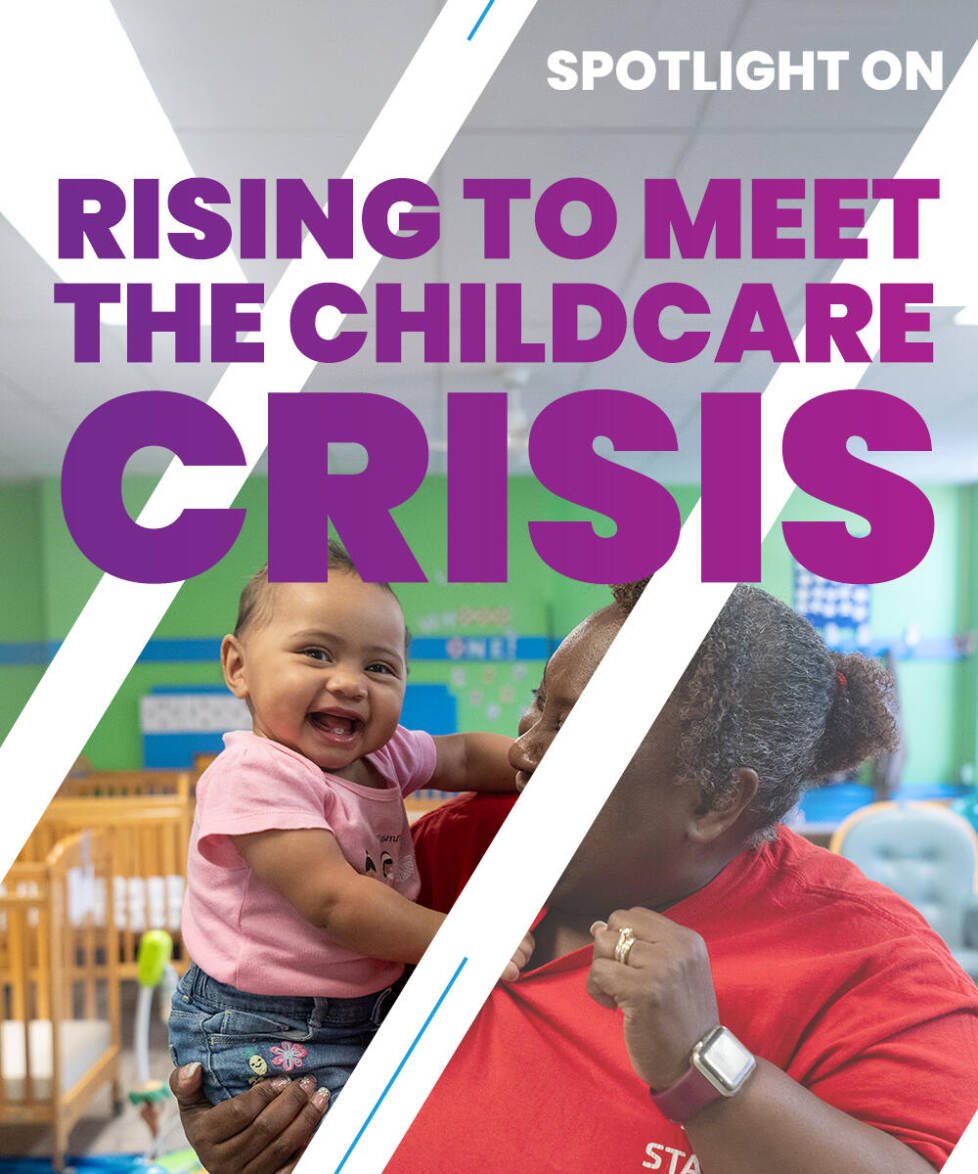
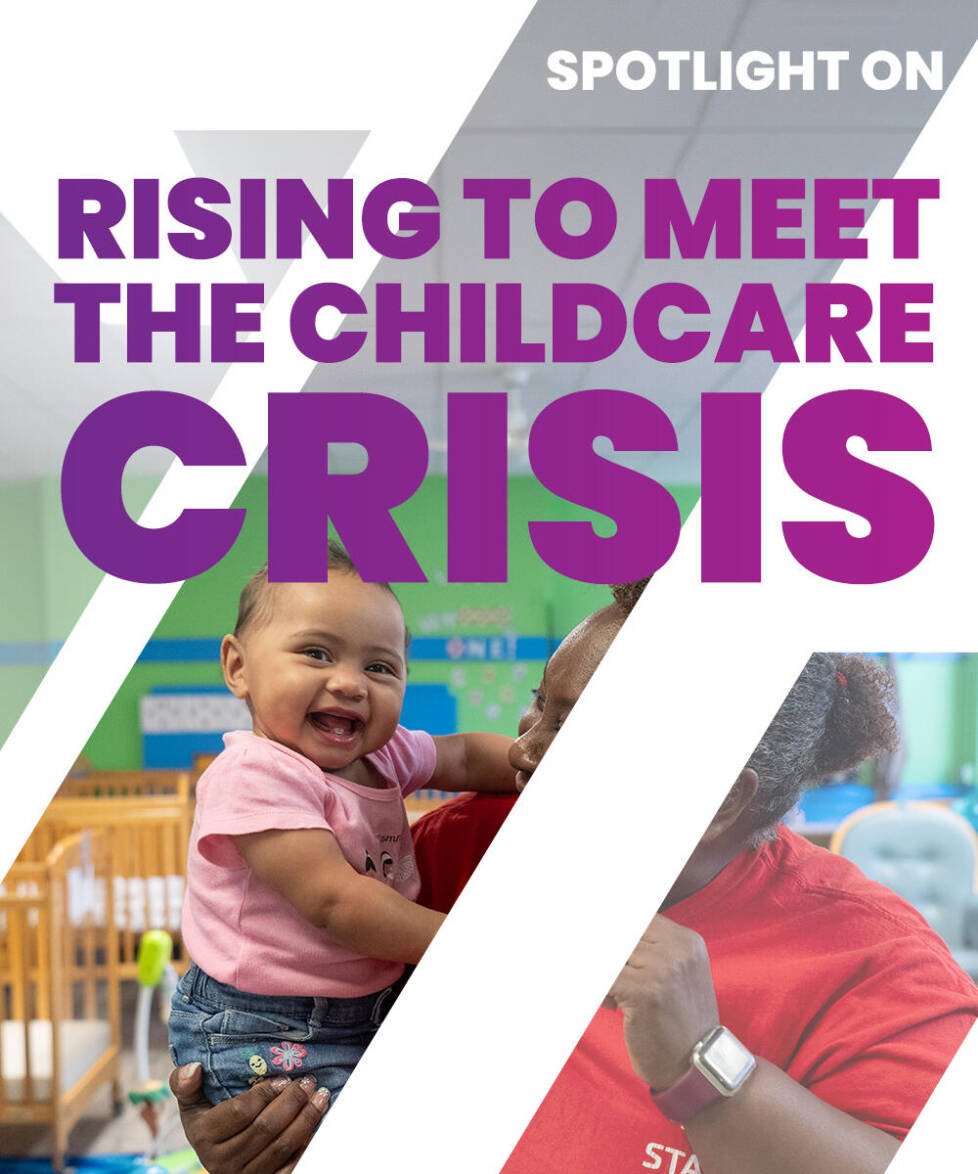
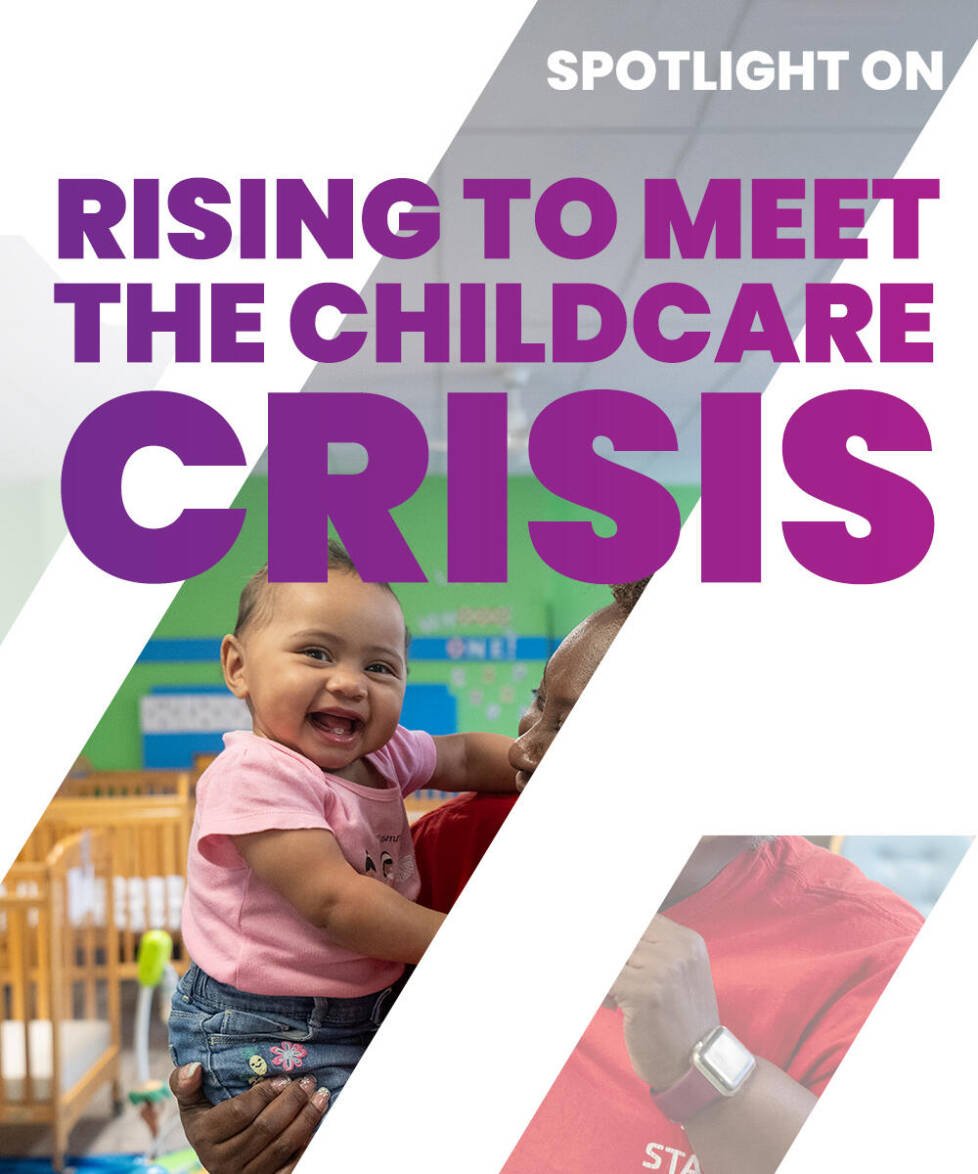
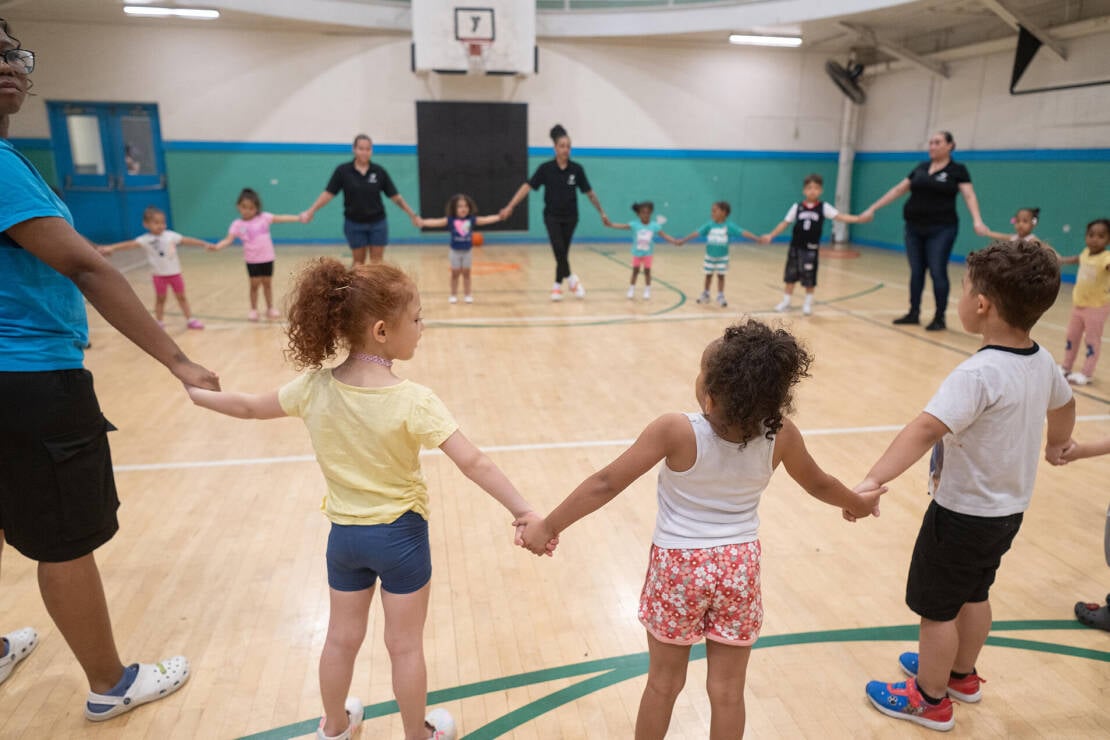
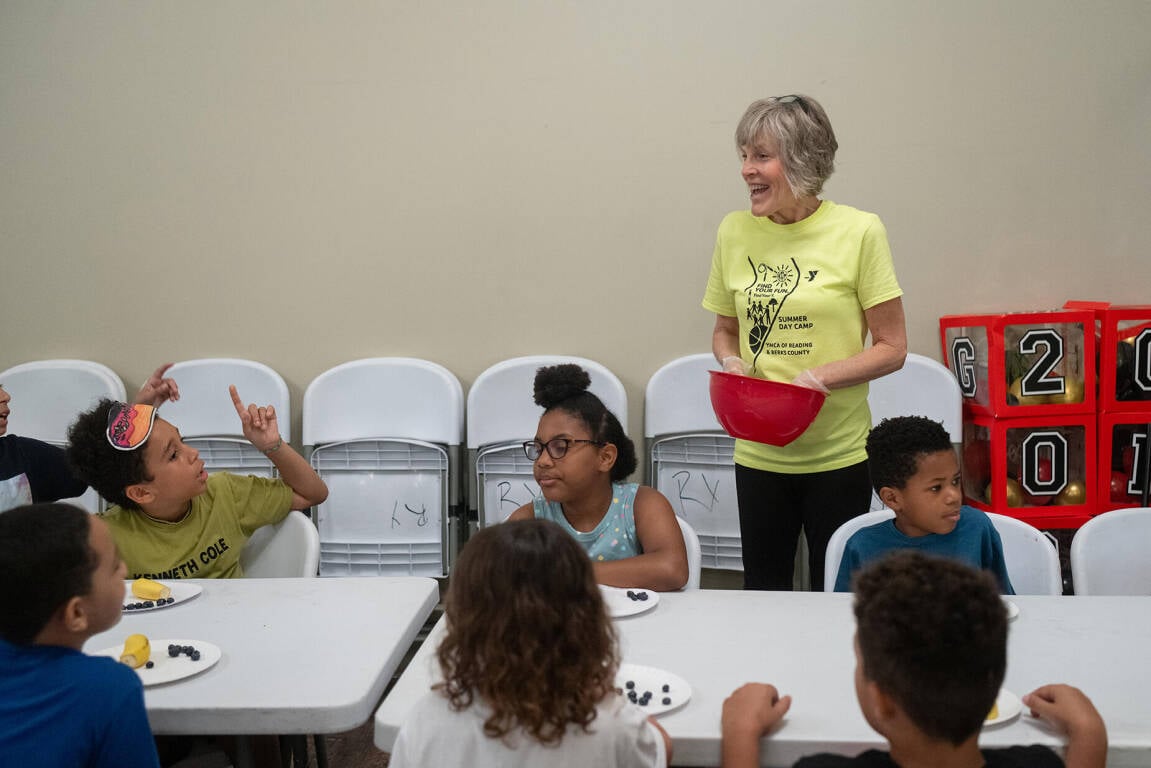
The organization's commitment extends beyond just housing. It provides pathways from transitional recovery housing to single room occupancy, creating a continuum of support. Its partnership with the Council on Chemical Abuse ensures intensive case management, while its connection to other YMCA services provides opportunities for residents to engage in fitness programs, educational activities and community connections.
During uncertain economic times, when funding for social services becomes increasingly competitive, the YMCA's decision to maintain these programs demonstrates its understanding that some community needs transcend business calculations. It has chosen to stay because it recognizes that for many people, these services make the difference between stability and crisis.
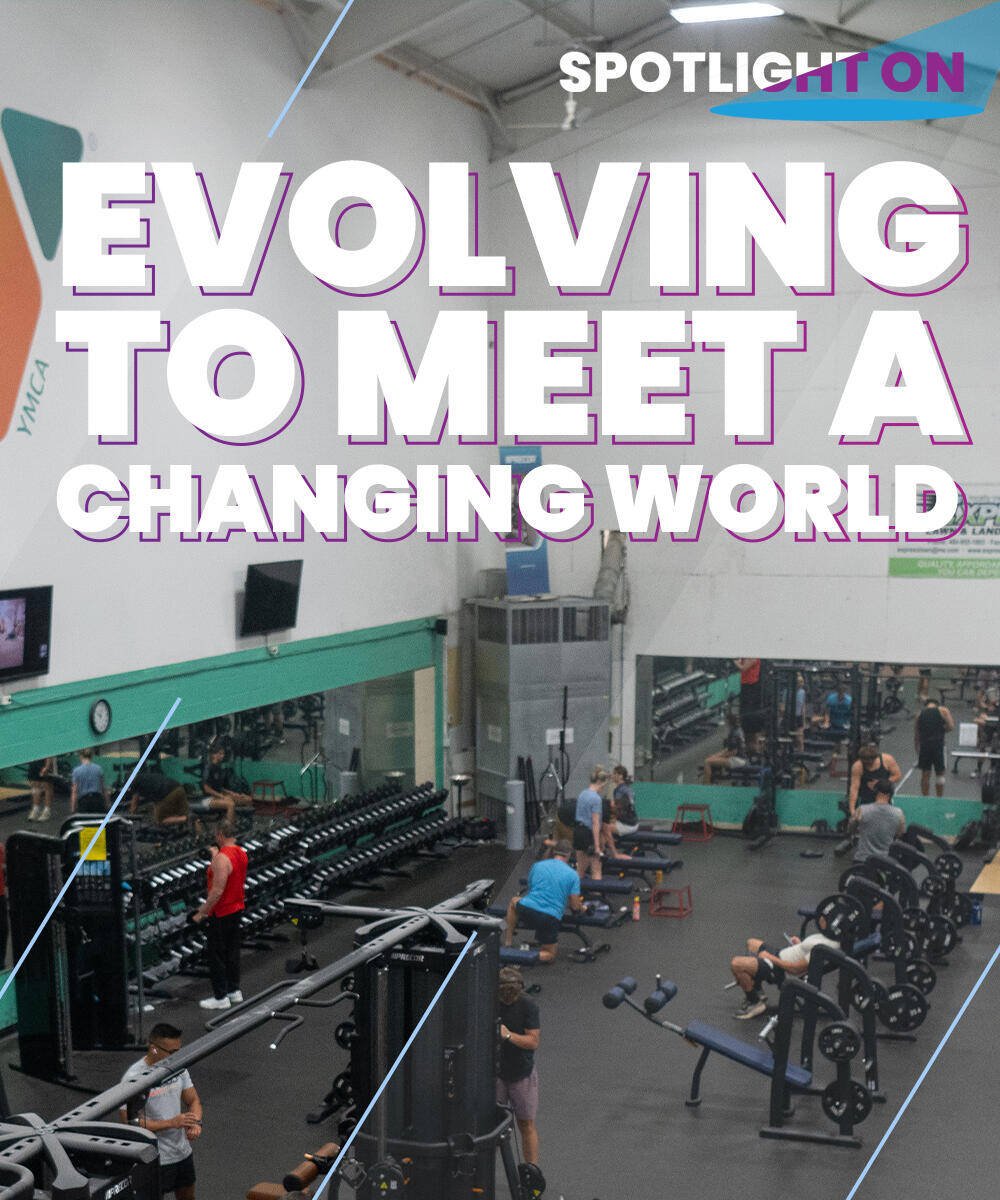
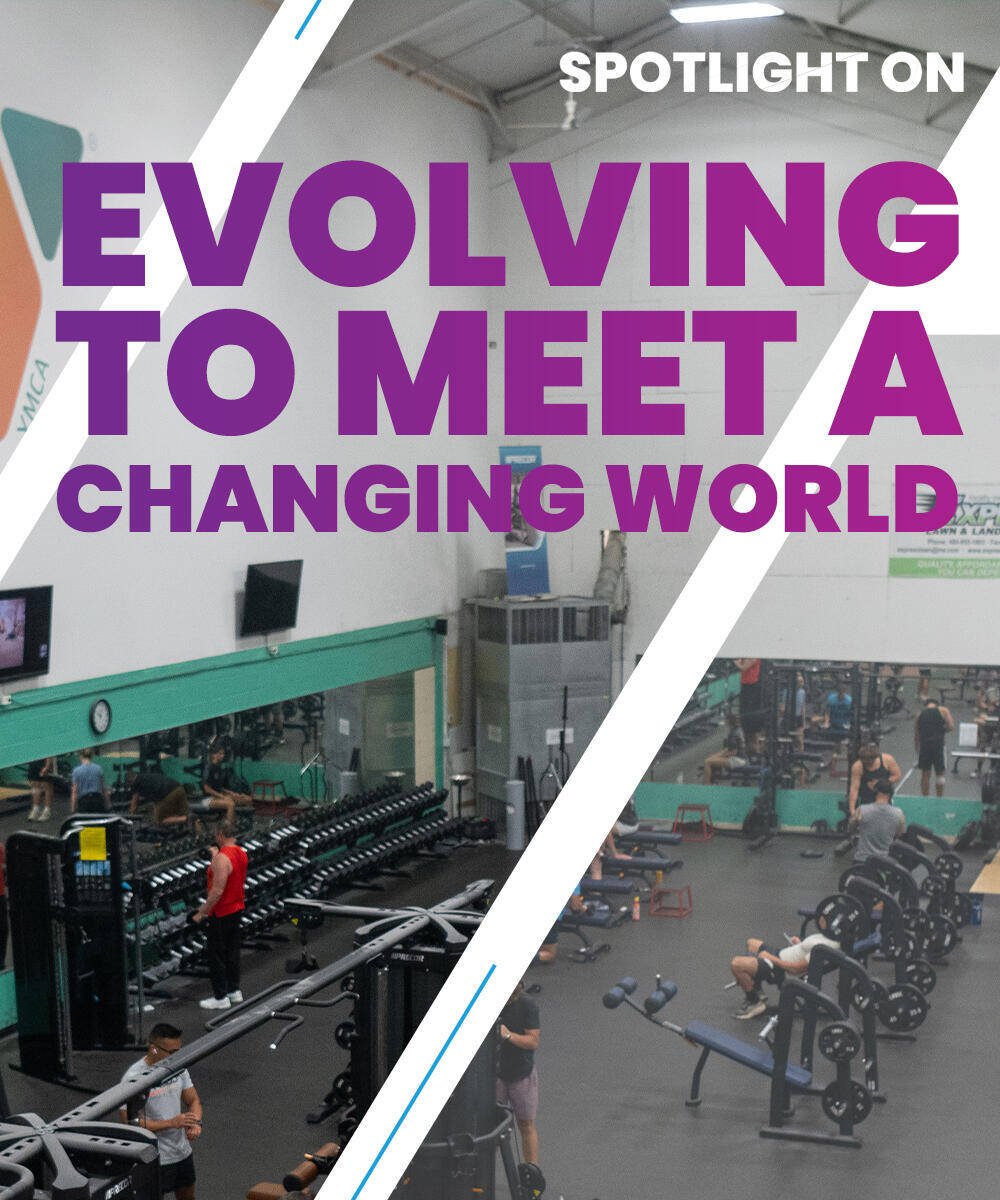
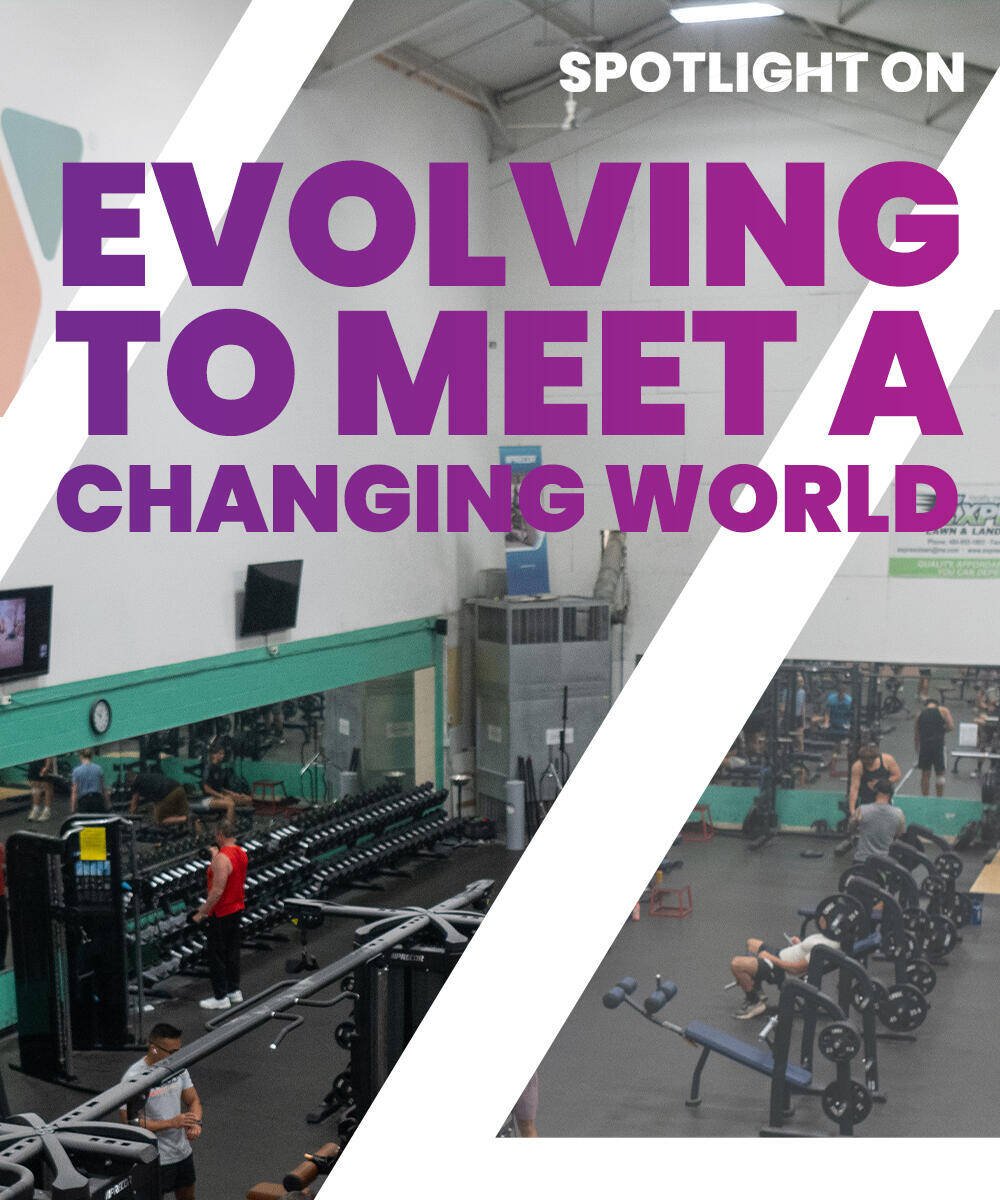
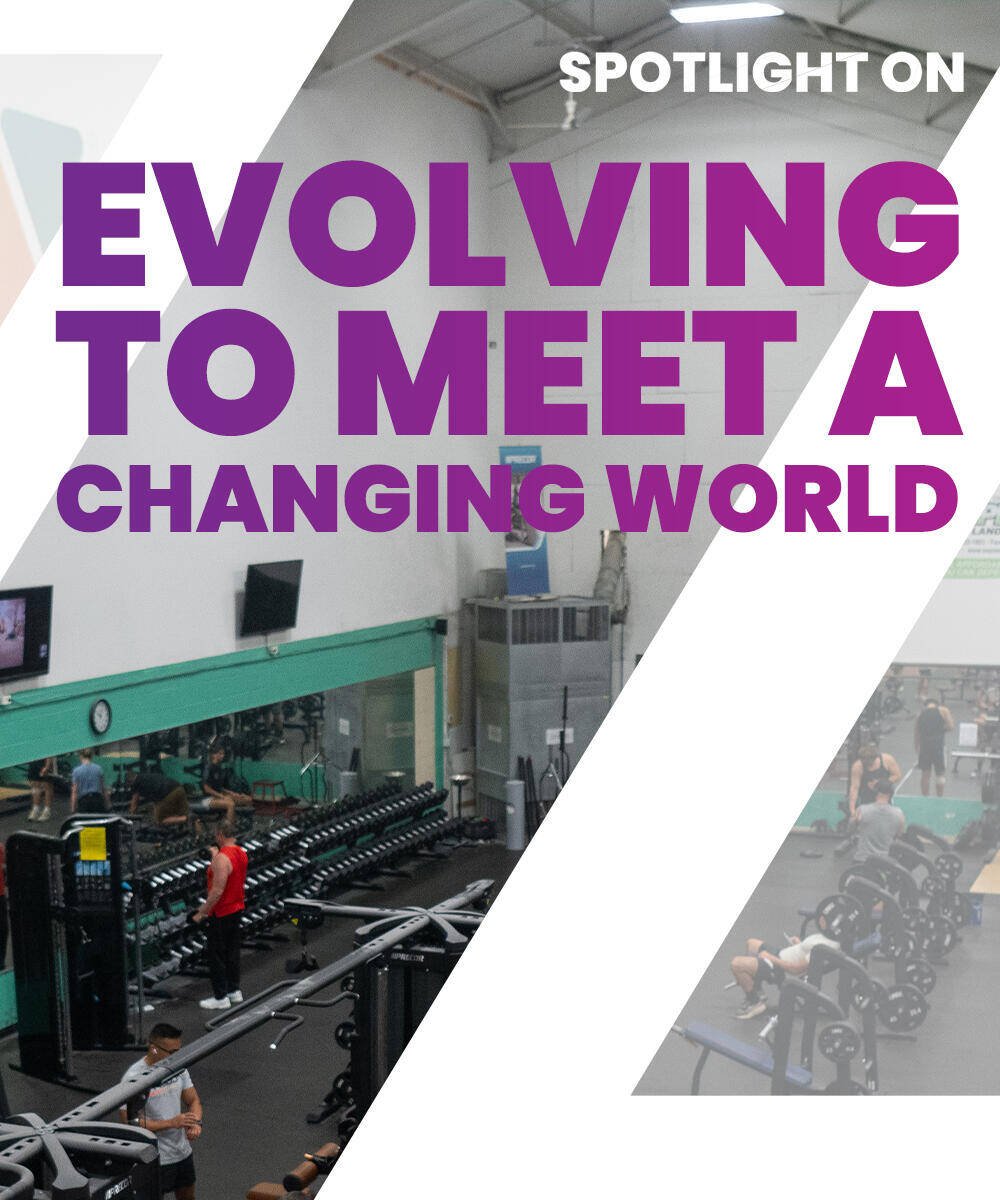

Perhaps most significantly, it has embraced the philosophy that community organizations must be proactive rather than reactive. "Our participants' and partners’ feedback across multiple touchpoints is incredibly valuable. It helps us shift, change and alter our services to keep them fresh," shares Borkey. Continuous feedback loops—through member surveys, community partnerships and direct observation—enable it to identify needs before they become overwhelming.
By choosing adaptation over rigidity, community service over profit maximization, the YMCA has become an essential piece of infrastructure in Greater Reading that helps individuals and families not just survive uncertainty, but build stronger foundations for the future.
As communities face unprecedented challenges—from social isolation to economic uncertainty to rapidly changing family structures—the YMCA has proven that adaptation isn't just about preserving what was, it's about imagining what’s possible.
The YMCA’s holistic approach reflects a deeper understanding of how modern families actually live. Consider this reality: a single parent working multiple jobs doesn't just need childcare—these parents need a support system that includes access to fitness facilities for stress relief, nutritional education for their children and connections to other community resources when challenges arise. Understanding that many families need comprehensive support rather than single services drove an integrated approach where childcare, fitness and social services operate under one roof.
"Our staff is very proactive," notes Eppihimer. "There's never a shortage of people willing to roll up their sleeves and get involved." This mindset extends beyond paid staff to the more than 1,000 volunteers who make YMCA programming possible throughout the region. From coaching youth sports and supporting special events to mentoring young people and assisting with community outreach, volunteers are essential partners in delivering the YMCA’s mission.
The organization also has adapted to changing demographics and community composition. Its partnerships span from local hospitals to law enforcement to educational institutions, creating a network that can respond to diverse community challenges.
Ancillary life skills are woven into its programming—such as nutritional activities, where children learn about healthy eating through hands-on cooking and gardening experiences.
"It's interesting because what we found is that a lot of kids don’t want to eat vegetables, but if they grow it themselves or if they cook it or prepare it, they'll devour them," Eppihimer observes with a smile.
But perhaps most importantly, the YMCA has found ways to expand services while keeping costs manageable for families. Rather than viewing the childcare crisis as an opportunity for profit, it has maintained its mission-driven approach.
Its strategy centers on efficiency and community support. By cross-training staff across multiple programs and maintaining strong volunteer networks, it reduces operational costs. Robust scholarship programs ensure that financial barriers don't prevent access—with assistance available based on genuine need rather than arbitrary income cutoffs.
The YMCA leverages its unique position as a comprehensive community organization. Families using childcare services gain access to fitness facilities, nutritional programs and family activities at no additional cost, creating value that extends far beyond traditional daycare.
This integrated approach allows it to serve more families without dramatically increasing fees, proving that addressing community crises doesn't require abandoning community values.
Across America, families face a stark reality: there aren’t enough licensed childcare slots for the kids who need them. In Berks County, this crisis hits particularly hard, with many families spending more on childcare than housing while others simply can't find care at all.
"There are approximately three kids that need care for every one licensed slot in our county," explains Borup. This shortage forces impossible choices—parents leaving the workforce, children in unlicensed care or families stretching budgets beyond breaking points.
The YMCA recognized this crisis wasn't temporary and adapted accordingly. It expanded its childcare capacity while aiming to maintain affordability that working families desperately need. Its wraparound services extend program hours from 6 a.m. to 6 p.m., accommodating parents whose work schedules don't align with traditional childcare hours.
The organization's response extends beyond simply providing more slots. It has invested in quality improvements that earned its programs Star 4 ratings, Pennsylvania's highest quality designation.
For 166 years, the YMCA of Reading & Berks County has been the backdrop for countless firsts—first steps into the pool, first friendships at summer camp, first safe nights for families in crisis and first chances at recovery. What began in 1858 as a modest reading room has evolved through countless adaptations to meet the changing needs of the times. We have countless stories about its impact—from housing services to fitness programs, from senior support to community partnerships. Today's story focuses on one of its most critical roles: supporting children and families. In an era when communities nationwide face a childcare crisis and families struggle with new economic pressures, the YMCA has proven that truly committed organizations don't resist change—they rise to meet it and view it as an opportunity to serve.
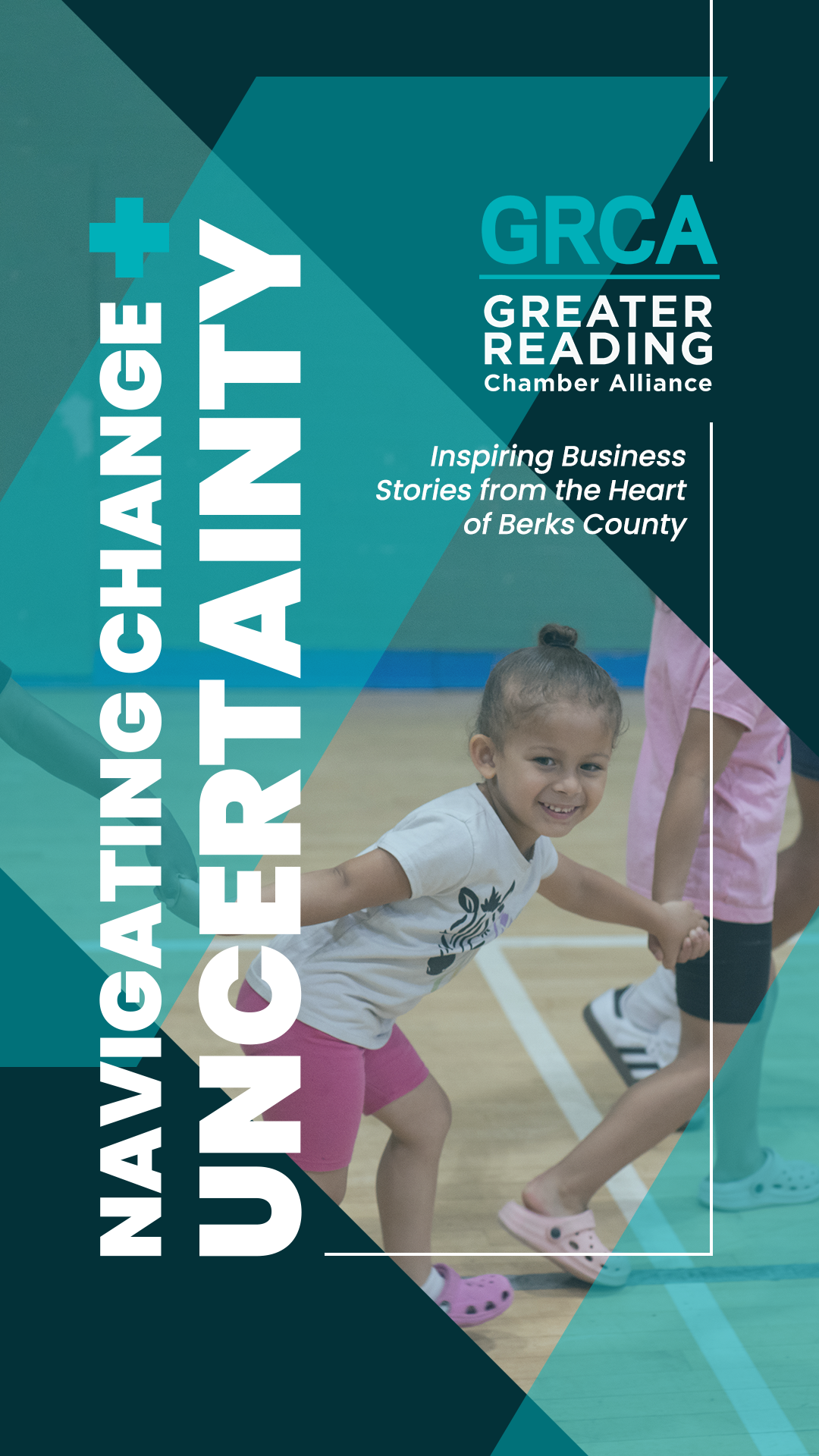
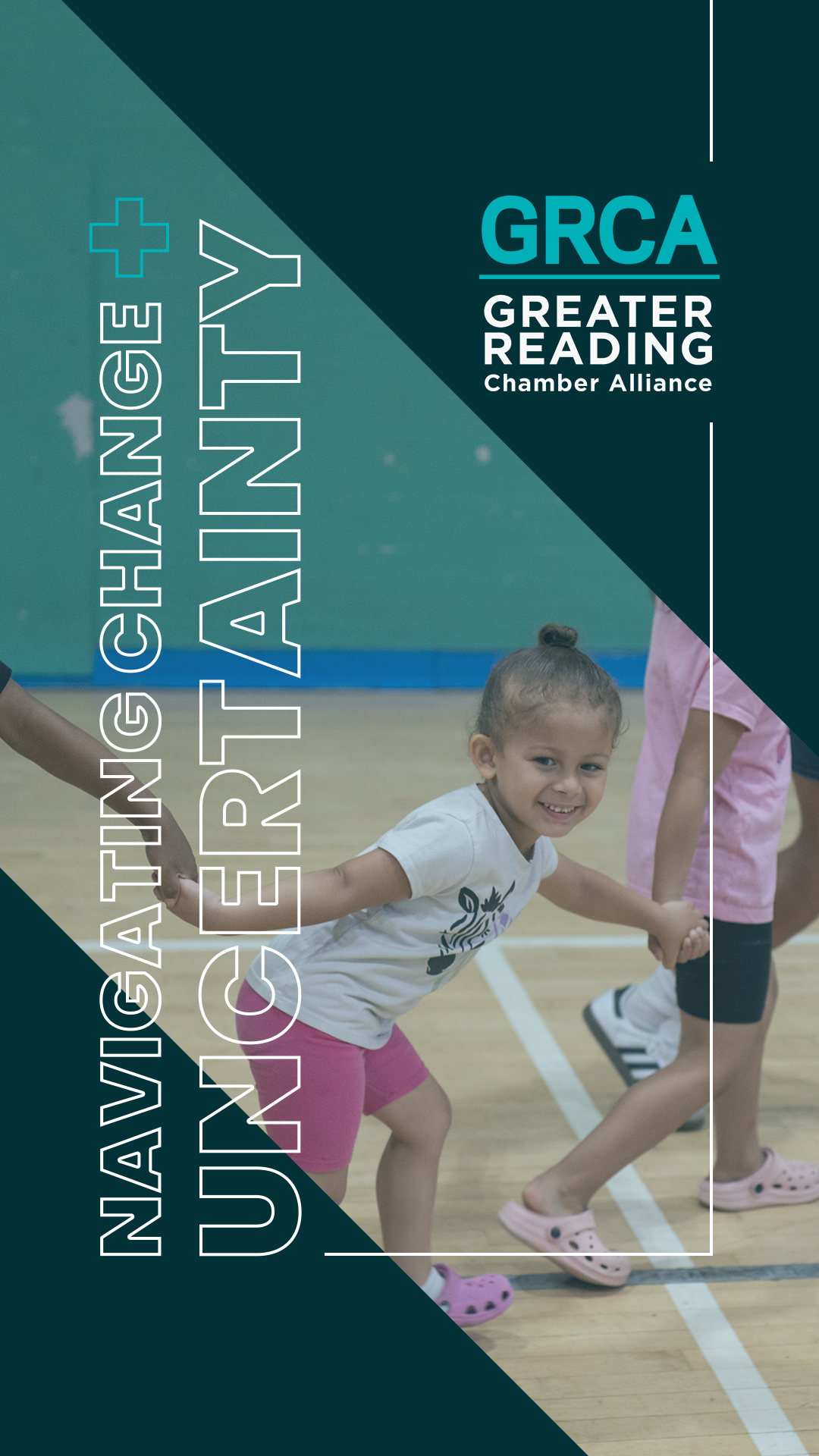
Want to explore additional Navigating Change + Uncertainty Stories from Reading, PA.? Visit the GRCA’s dedicated webpage.
Interested in learning more about a GRCA membership and a chance to be featured in an upcoming feature story?

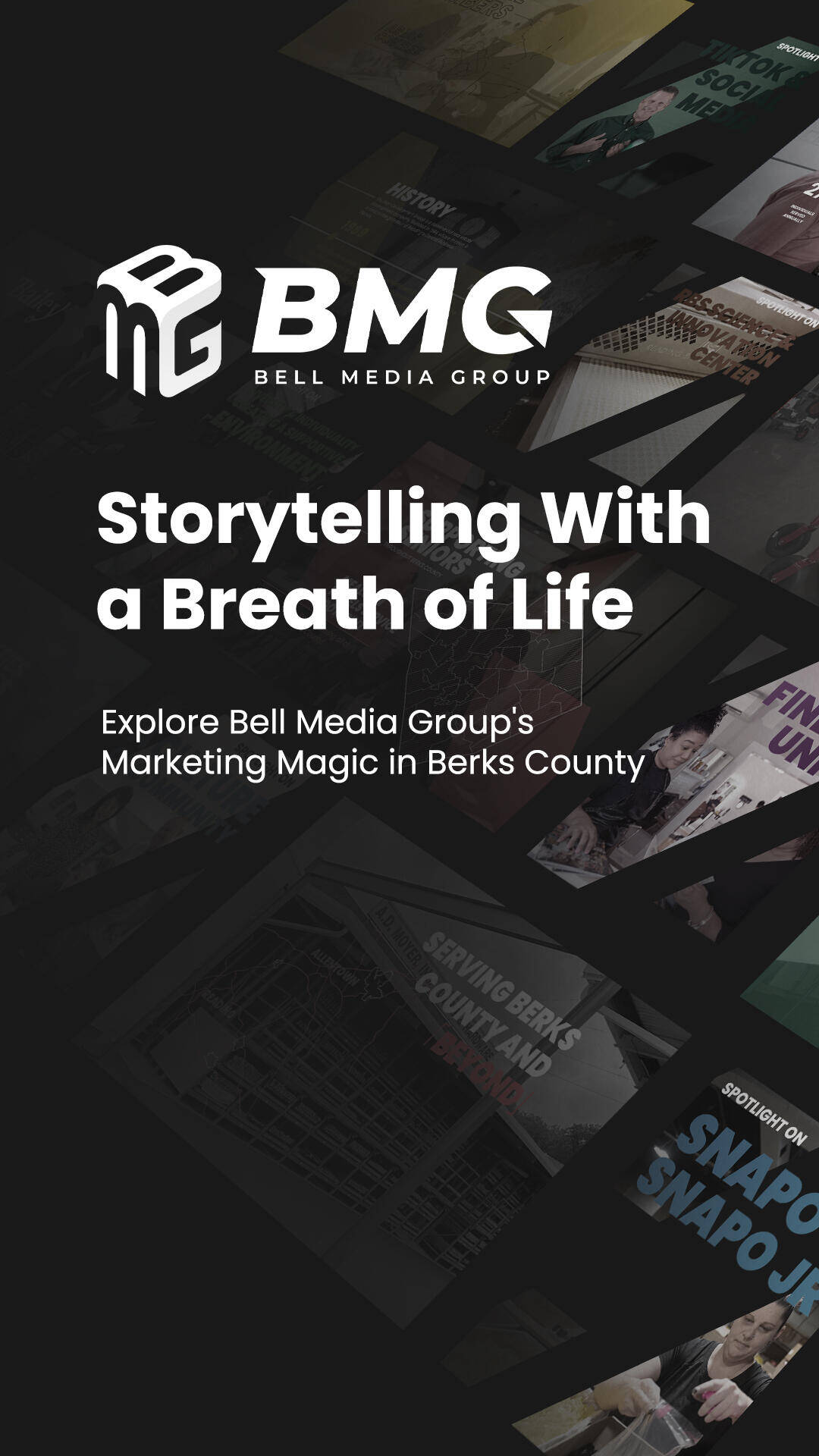
Innovation on the Horizon
For 167 years, the YMCA of Reading & Berks County has understood a simple truth: when communities face uncertainty, the answer isn't to pull inward but to reach outward. As it looks ahead, the YMCA continues expanding its reach with new initiatives and partnerships that reflect changing community needs. In times when division seems easier than unity, when change feels overwhelming rather than energizing, the YMCA stands as proof that organizations built on genuine care for others don't just endure—they become unbreakable threads that hold communities together. After all, the challenges may change with each generation, but the human need for connection, support and belonging never will.
The organization also has adapted to changing demographics and community composition. Its partnerships span from local hospitals to law enforcement to educational institutions, creating a network that can respond to diverse community challenges.
Perhaps most significantly, it has embraced the philosophy that community organizations must be proactive rather than reactive. "Our participants' and partners’ feedback across multiple touchpoints is incredibly valuable. It helps us shift, change and alter our services to keep them fresh," shares Borkey. Continuous feedback loops—through member surveys, community partnerships and direct observation—enable it to identify needs before they become overwhelming.
By choosing adaptation over rigidity, community service over profit maximization, the YMCA has become an essential piece of infrastructure in Greater Reading that helps individuals and families not just survive uncertainty, but build stronger foundations for the future.

As communities face unprecedented challenges—from social isolation to economic uncertainty to rapidly changing family structures—the YMCA has proven that adaptation isn't just about preserving what was, it's about imagining what’s possible.
The YMCA’s holistic approach reflects a deeper understanding of how modern families actually live. Consider this reality: a single parent working multiple jobs doesn't just need childcare—these parents need a support system that includes access to fitness facilities for stress relief, nutritional education for their children and connections to other community resources when challenges arise. Understanding that many families need comprehensive support rather than single services drove an integrated approach where childcare, fitness and social services operate under one roof.
"Our staff is very proactive," notes Eppihimer. "There's never a shortage of people willing to roll up their sleeves and get involved." This mindset extends beyond paid staff to the more than 1,000 volunteers who make YMCA programming possible throughout the region. From coaching youth sports and supporting special events to mentoring young people and assisting with community outreach, volunteers are essential partners in delivering the YMCA’s mission.
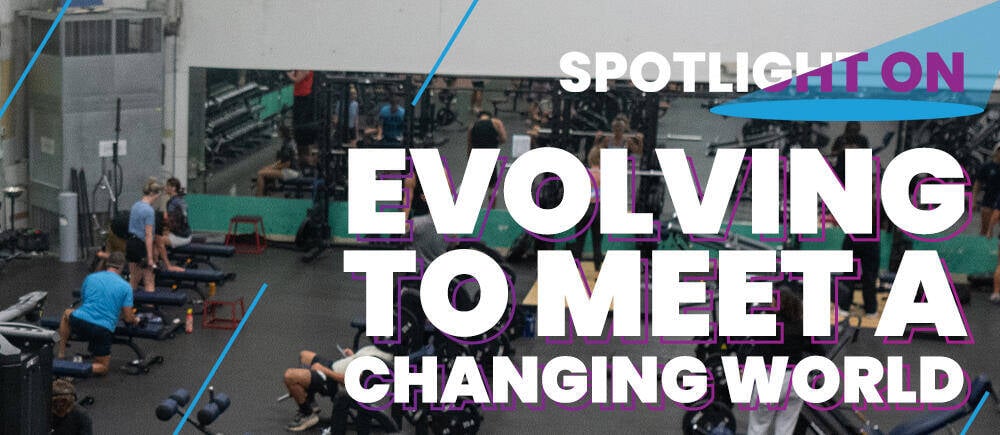
The decision to maintain these services hasn't been without challenges. Urban YMCAs across the country have abandoned aging buildings rather than renovate them for residential use. "Many Ys have abandoned those old buildings," explains Borup. "Newer Ys don't have the residential piece built into them."
The organization's commitment extends beyond just housing. It provides pathways from transitional recovery housing to single room occupancy, creating a continuum of support. Its partnership with the Council on Chemical Abuse ensures intensive case management, while its connection to other YMCA services provides opportunities for residents to engage in fitness programs, educational activities and community connections.
During uncertain economic times, when funding for social services becomes increasingly competitive, the YMCA's decision to maintain these programs demonstrates its understanding that some community needs transcend business calculations. It has chosen to stay because it recognizes that for many people, these services make the difference between stability and crisis.
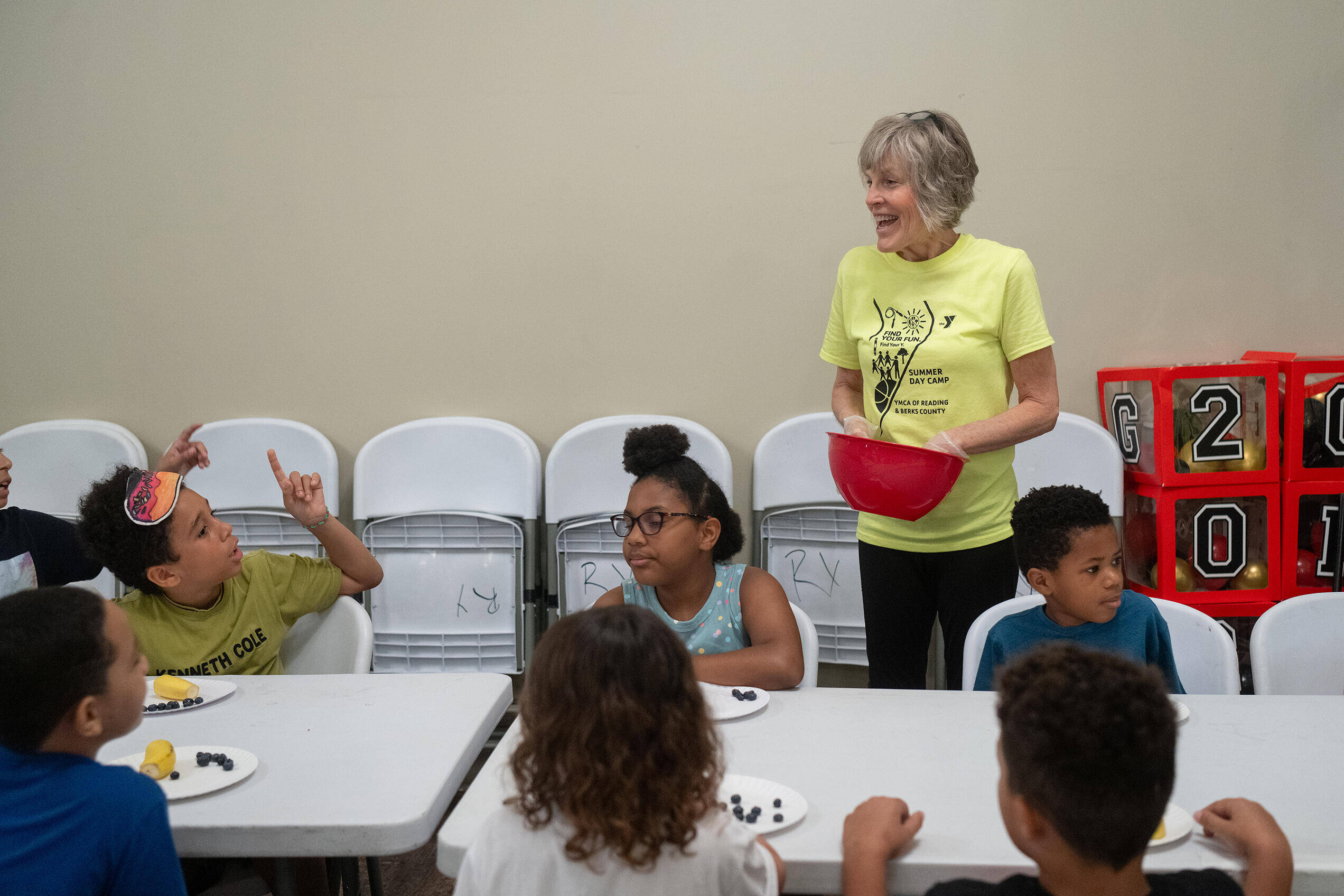
In an era when many organizations abandon challenging services due to cost or complexity, the YMCA of Reading & Berks County has chosen a different path. It remains one of a handful of YMCAs in the country still providing recovery housing services—a commitment that reflects its understanding of true community need.
“We are one of a few in the country that still provide recovery housing services and among a dozen who still offer housing," explains Borkey. This distinction matters because recovery housing requires specialized programming, intensive case management and long-term commitment that many organizations find unsustainable.
The YMCA operates 153 beds across multiple facilities, including its main transitional living programs and single room occupancy options. What makes its approach unique is the comprehensive support system it provides. "We have a combination where women with children have access to on-property childcare," notes Borkey. This integration of services removes transportation barriers that often prevent people in recovery from accessing the support they need.”
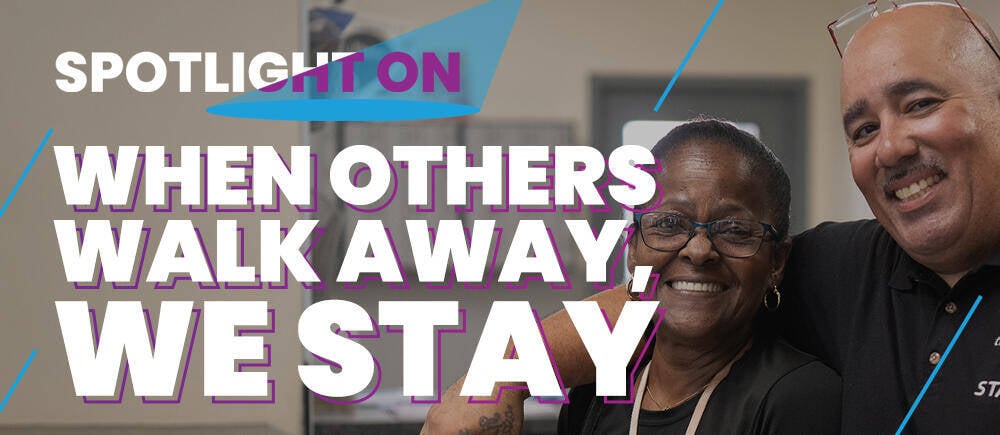
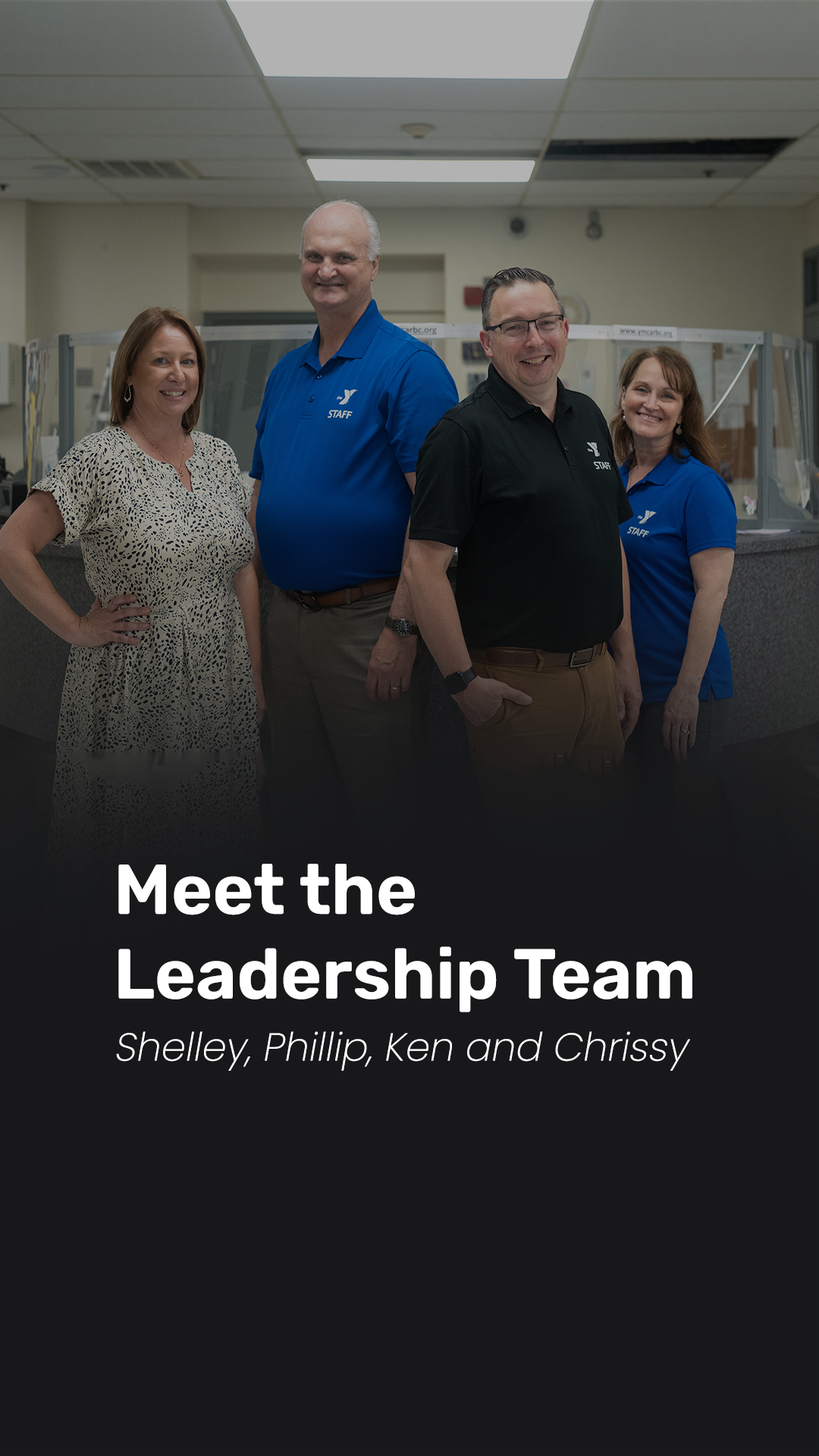
"It's interesting because what we found is that a lot of kids don’t want to eat vegetables, but if they grow it themselves or if they cook it or prepare it, they'll devour them," Shelly Eppihimer, Vice President of Youth Development, observes with a smile.
But perhaps most importantly, the YMCA has found ways to expand services while keeping costs manageable for families. Rather than viewing the childcare crisis as an opportunity for profit, it has maintained its mission-driven approach.
Its strategy centers on efficiency and community support. By cross-training staff across multiple programs and maintaining strong volunteer networks, it reduces operational costs. Robust scholarship programs ensure that financial barriers don't prevent access—with assistance available based on genuine need rather than arbitrary income cutoffs.
The YMCA leverages its unique position as a comprehensive community organization. Families using childcare services gain access to fitness facilities, nutritional programs and family activities at no additional cost, creating value that extends far beyond traditional daycare.
This integrated approach allows it to serve more families without dramatically increasing fees, proving that addressing community crises doesn't require abandoning community values.
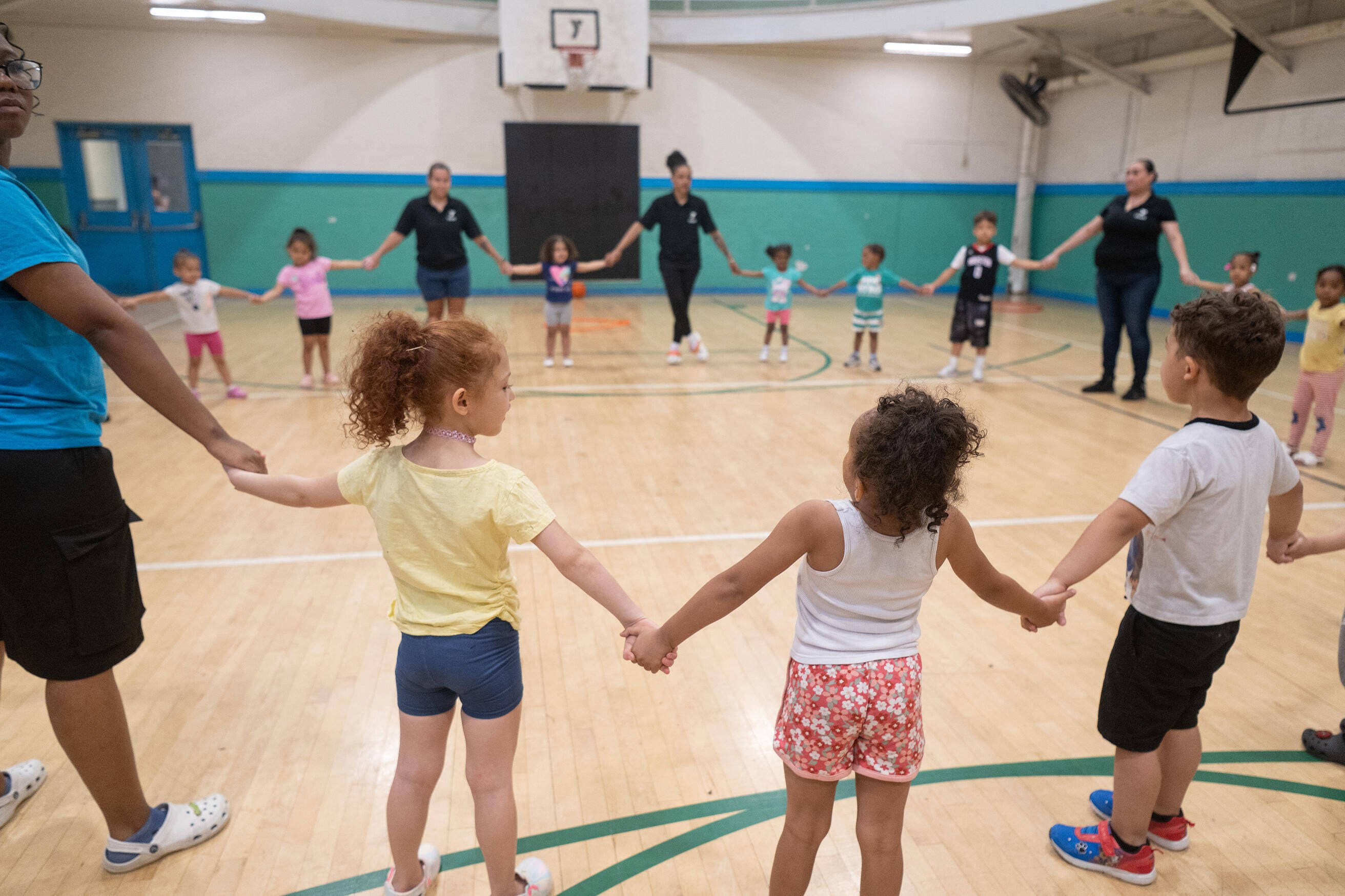
Across America, families face a stark reality: there aren’t enough licensed childcare slots for the kids who need them. In Berks County, this crisis hits particularly hard, with many families spending more on childcare than housing while others simply can't find care at all.
"There are approximately three kids that need care for every one licensed slot in our county," explains Borup. This shortage forces impossible choices—parents leaving the workforce, children in unlicensed care or families stretching budgets beyond breaking points.
The YMCA recognized this crisis wasn't temporary and adapted accordingly. It expanded its childcare capacity while aiming to maintain affordability that working families desperately need. Its wraparound services extend program hours from 6 a.m. to 6 p.m., accommodating parents whose work schedules don't align with traditional childcare hours.
The organization's response extends beyond simply providing more slots. It has invested in quality improvements that earned its programs Star 4 ratings, Pennsylvania's highest quality designation. Ancillary life skills are woven into its programming—such as nutritional activities, where children learn about healthy eating through hands-on cooking and gardening experiences.
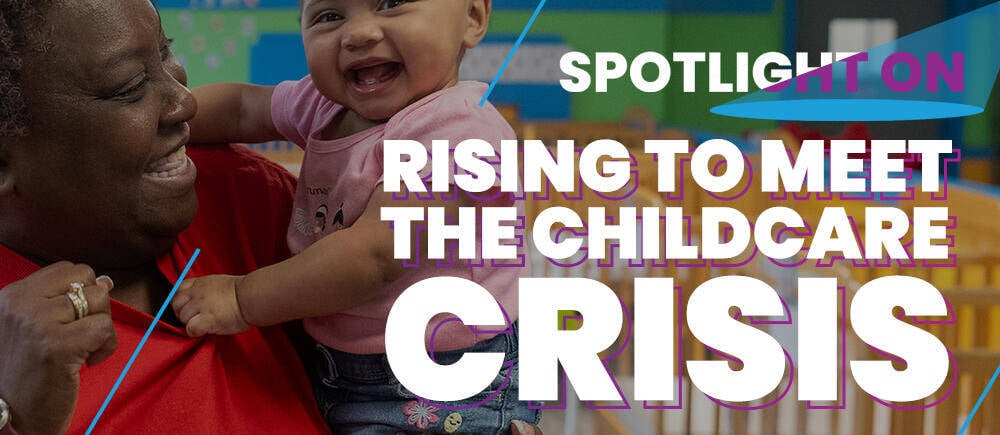
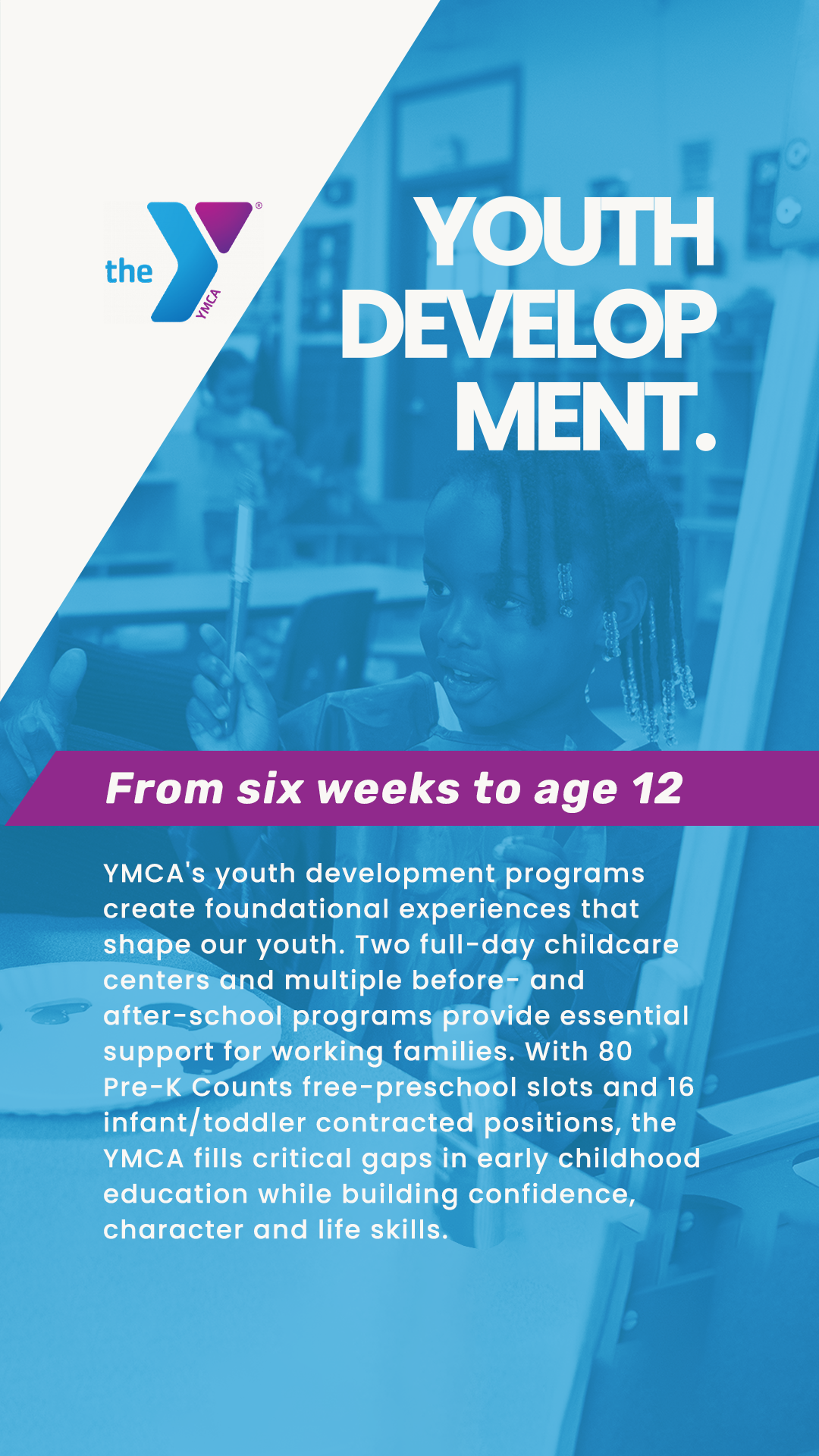
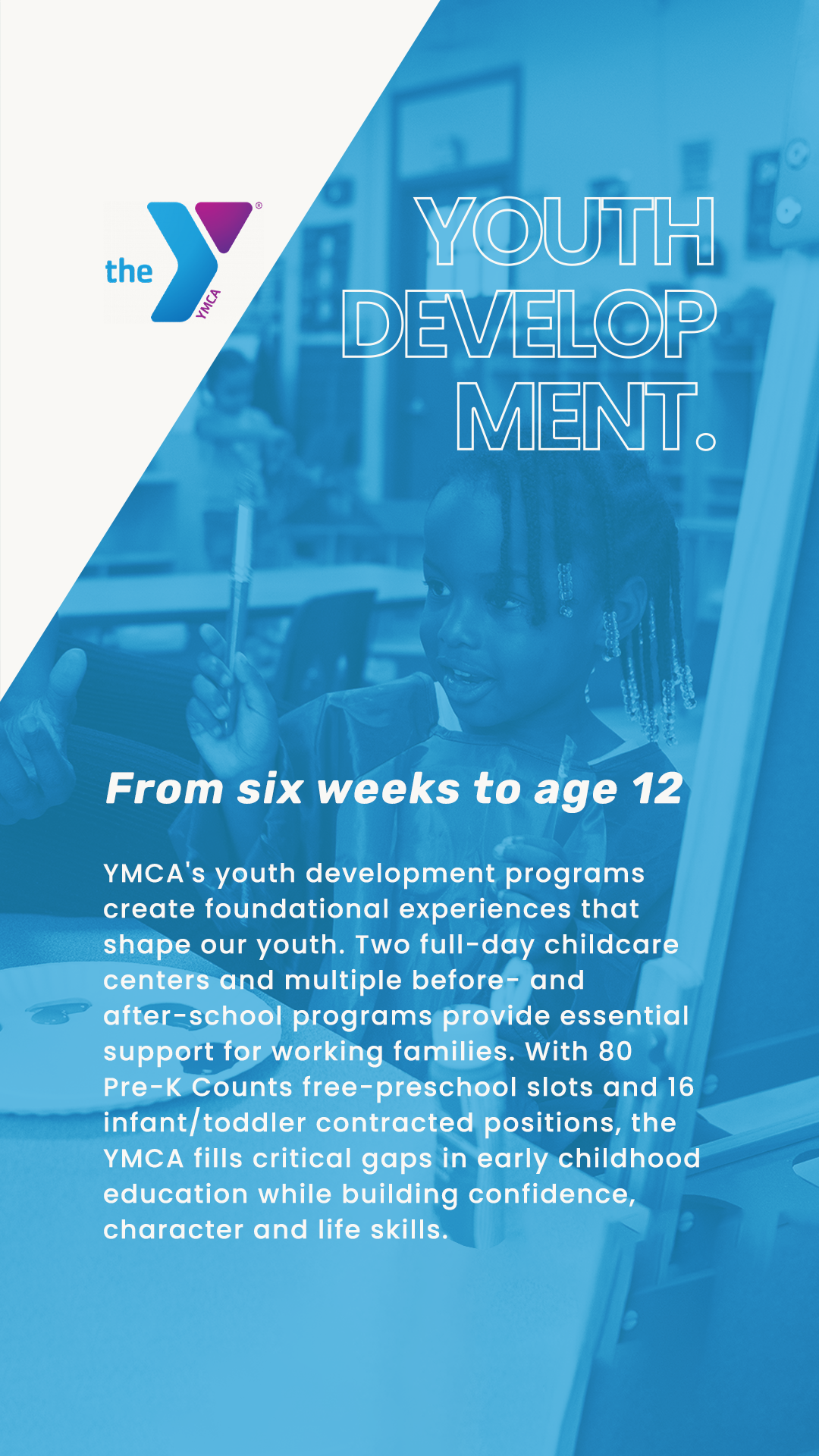
The Story Behind the YMCA
The story of the YMCA of Reading & Berks County begins in 1858, with young men gathering in a rented room at 544 Penn St., reading newspapers and seeking fellowship as an alternative to the corner saloons of the day.
“The YMCA movement began in 1844 in London, and the Reading YMCA opened its doors in 1858, making us one of the oldest Ys in the country," notes Phillip Borup, President and CEO. This local chapter was part of the initial wave of American YMCAs, when fewer than 100 existed nationwide.
The modern YMCA has organized its work around three core areas: Youth Development, Healthy Living and Social Responsibility. These interconnected services reach nearly 8,500 active members and participants across the region and are delivered through its main facility and community branches in Adamstown, Mifflin, Reading, Sinking Spring and Tri Valley.
The scope of its work, however, challenges simple categorization. It operates two full-day childcare centers, multiple after-school programs, summer camps and transitional housing facilities. It’s one in a dozen YMCAs in the country still providing recovery housing services, recognizing that some community needs require long-term commitment—even when they're challenging to sustain.
This approach has enabled the YMCA to navigate everything from wars and economic downturns to culture revolutions and global pandemics. After more than a century and a half, it continues proving that organizations rooted in community needs can adapt to any era if it preserves its core purpose. "We always look first to the mission and vision alignment of what we're trying to do," reflects Ken Borkey, Chief Operating Officer.

For 166 years, the YMCA of Reading & Berks County has been the backdrop for countless firsts—first steps into the pool, first friendships at summer camp, first safe nights for families in crisis and first chances at recovery. What began in 1858 as a modest reading room has evolved through countless adaptations to meet the changing needs of the times. We have countless stories about its impact—from housing services to fitness programs, from senior support to community partnerships. Today's story focuses on one of its most critical roles: supporting children and families. In an era when communities nationwide face a childcare crisis and families struggle with new economic pressures, the YMCA has proven that truly committed organizations don't resist change—they rise to meet it and view it as an opportunity to serve.
